 Rabbi Avi Shafran is director of public affairs for Agudath Israel of America.
Rabbi Avi Shafran is director of public affairs for Agudath Israel of America.Email this putz and demand he stop camouflaging the TRUTH.
Or better yet; drop in, write, or call Shafran at:
Address:
42 BroadwayNew York, NY
10004-1617
Phone: (212) 797-9000
----------------------------------------------------------------------------------------------
My Dear Readers,
It is extremely difficult to take any rabbinical authority seriously these days, especially one such as "Rabbi" Avi Shafran, who is a living hypocrite that has deceived the Jewish people time and time again. Shafran is a typical political guru. His answers change with the wind. His job is to keep political pressure off Agudath Israel of America, even if it entails the task of LYING, CHEATING, DISTORTING, MANIPULATING, STEALING, AND TWISTING OF THE FACTS.
A great quote by
"I desire so to conduct the affairs of this administration that if at the end, when I come to lay down the reins of power, I have lost every other friend on earth, I shall at least have one friend left, and that friend shall be down inside me."
Here is one last quote which I believe is an essential mindset for all humanity. Unfortunately, a large portion of society do not adhere to this philosophy. What a Shame!Holocaust Museum, Washington, DC:
"Thou shalt not be a victim. Thou shalt not be a perpetrator. Above all, thou shalt not be a bystander."
Have a safe and happy summer everybody,
EM
-------------------------------------------------------------------------------------------
Tuesday, November 07, 2006
Rabbi Avi Shafran Responds to Blogger UOJ
The following e-mail was forward to me by Rabbi Avi Shaffran. It is a response to the request blogger UOJ (Unorthodox Jew) made to speak at the upcoming Agudath Israel conference.
Dear Mr. Jew,
We appreciate and thank you for your offer but don’t feel it would be proper for us to accept it.
You have made clear in your blogging your utter disdain and contempt for Agudath Israel and the rabbinic authorities to whom we look for guidance, as well as rabbinic luminaries from other camps and even from other generations.
We realize that you regard yourself as a pure-hearted public servant/prophet, and far be it from us to deny you your self-regard. But, we hope you understand, it would be irresponsible of us to assist you in your personal goals.
Sincerely,
Rabbi Avi Shafran
------------------------------
Below is copy of the original letter sent to Rabbi Avi Shafran by UOJ.
Date: November 2, 2006
From: Unorthodox Jew
Subject: Respectfully requesting an invitation to respond to David Zweibel, Ephraim Wachsman & Mattisyahu Solomon
To: shafran@agudathisrael.org
Dear Rabbi Shafran & Rabbi Zweibel,
I'm respectfully requesting an invitation to the Agudath Israel Convention's Thursday evening session. I would like the opportunity to publicly respond from the podium to the above featured speakers.
I guarantee that all language will be totally appropriate for the distinguished crowd of rabbis and laymen.
My ideas and writings represent a silent majority of Orthodox Jews globally; if you truly care about the welfare of all Orthodox Jews, you would not be concerned about letting me appeal to your audience's intellect and sensibilities.
You're certain to get national and international media attention; let the authentic Torah views prevail.
I'm hoping for an affirmative response at your earliest convenience; I would like to have enough time to prepare my divrei Torah and chizuk.
Very Sincerely,
UOJ The Unorthodox Jew
www.theunorthodoxjew.blogspot.com
-------------------------------------------------------------------------------------------
Rabbi Avi Shafran has been a spokesman for Agudath Israel (right-of-center Orthodox group) for about a decade. He writes weekly columns widely printed in the Jewish press.
"I'm something of a journalism junkie," he says July 2, 2004.
"Do you find it a good experience to interact with the news media?"
"I'm not usually happy when I interact with the general press. I find that reporters often miss important nuances.
"There are, though, good reporters out there. I particularly liked the work of Gus Niebuhr, who was the religion editor of The New York Times. He's now teaching at a university. He was an open-minded, fair-minded, perceptive, reporter. And, unfortunately, he apparently didn't like his job at The Times.
"I've been impressed as well by Dan Okrent, the ombudsman at The Times. I've interacted with him considerably."
"Are there any Orthodox Jews working the secular news media that you know of?"
"Not that I know of."
There are such people but they are few and far between and Rabbi Shafran does not know them.
Jewish laws about forbidden speech (lashon hara) make it difficult for a Torah Jew to work as a journalist.
"Are there things the Orthodox community has been doing that discourage Jews from going into journalism?"
"It is a problem. I was heartened that the most recent issue of The Jewish Observer (published by Agudath Israel) took to task the state of secular education in some Haredi schools, that secular studies are not taken seriously enough in some of our yeshivos. It seems that we subtly send the message that these are not important things. And that's not right. First, they are required by American law, which should take the issue off the table. Communication skills are the most valuable things a Jew can have. We're all about communication, study, arguing, investigating.
'It's not surprising that our focus has been somewhat limited until now. The last 40 years of American Orthodoxy have largely been all about recovering from the Holocaust. We've rarely had the chance to settle down and set forth a positive agenda."
"Do your fellow [charedim] give you a hard time about your column and work with the secular news media?"
"Not really. I have a good relationship with my community. Sometimes I will get scathing letters about using big words. I also get criticized for referring to Reform and Conservative [clergy] as rabbis."
Rabbi Shafran's formal secular education ended when he graduated high school.
"What kind of journalist do you write out of your Rolodex?"
"Someone who makes no effort to be objective. When words are taken out of context. Ideas are skewed and not rendered the way they are given over, and it happens eight or nine times with the same person, I become disillusioned. There's only one reporter, though, whom I've written out. Not to say that there aren't others I'm cautious about."
"What do you love and hate about your job?"
"I love everything about it and I hate nothing about it."
"What's your critique of the Forward?"
"The Forward is generally a fascinating paper. It fills a niche. It's independent and cheeky and undaunted. I've been happy with the way its editors have responded when I've had criticism of the way a particular thing has appeared in the Forward. When I've requested Op/Ed space to reply to something, they've been forthcoming. In one case, I skewered the paper for a blatantly hypocritical position. They had editorialized about the need to take care of America's underprivileged children no matter whose fault it is that they are underprivileged (referring to the urban communities). Then a while later, they blasted the Israeli charedi community for having so many children and asking the government to help support them.
"It was to their tremendous credit that they published my piece, and without any editorial response. They gave themselves a black eye. When I asked JJ Goldberg for permission to reprint it, he even said to me, 'It is one thing to let you do what you did in our pages, but to have you do it in other papers, we'd prefer you do not.' I respected that sentiment, but took it as a compliment.
"On the other hand, I think there have been times when the paper has been too anxious to score a scoop, and in the process has trampled objectivity. One example is the story they did on that book [about Jews and non-Jews] that was put out in Lakewood.
"The Forward was approached by [Allan Nadler], who is not a journalist but an academic. Academics have no business writing news stories. He should have written an Op/Ed piece, but even that would have been slanderous, I think. He wrote a front page news story. I wonder what would happen if I wrote an entirely opinionated, and inaccurate, news story and asked them to run it on the front page.
"As I understand, he went to the Forward and said, this is an article I've written. If you don't want it, I'll go to your competitor. The Forward was fair enough to share with us the first draft of the piece, and were were apoplectic. It had things in there whose appearance would have been dangerous for the Jewish community but what was worse was that those things were clearly not reflective of what the book had said. We hadn't read the book at that point, but we knew what it could not conceivably say and indeed, once it was read, it became clear that it hadn't said those things. They considerably changed the first version but they still left in stuff that we considered to be libelous.
"To refer to Jewish election as racial supremacy is a pejorative."
"Especially when any member of any race can convert to it."
[I understand from my sources within the Forward that the paper kept Allan Nadler's byline on the article when he did almost none of the reporting and absolutely none of the writing].
Charedi Rabbis Rush To Disavow Anti-Gentile Book by Allan Nadler (Initial article)
Agudath Israel of America has refused to condemn the book by Rabbi Saadya Grama, published in Hebrew under the title 'Romemut Yisrael Ufarashat Hagalut,' which can be translated in several ways, including "The Grandeur [or Superiority] of Israel and the Question of Exile."
"It was an article designed to get non-Jews upset," says Rabbi Shafran. "It was an irresponsible thing to run it, yet run it they did. When some people within our organization criticized it, they made that into a story also. As if we were trying to interfere with the march of progress.
"The book was a polemic. It wasn't meant to be a comprehensive exposition of the Jewish attitude towards non-Jews. It was more about the importance of Jews distancing themselves in their minds from from non-Jews.
"The book was written in Hebrew for a small like-minded community. I think he printed a few hundred copies. [Allan Nadler] came across it in a bookstore in Jerusalem and was outraged by it, which he has the right to be if he wants. I don't know. I haven't read the whole book. I'm not particularly interested in reading it. I have my own clarity on the topic.
"I was very impressed by Sam Freedman's book Jew vs Jew. I thought he did a masterful job presenting points of view that I'm sure he didn't agree with."
"What did you think of Gary Rosenblatt's famed investigative series on Baruch Lanner?"
"I don't know the background of the story to know if there could have been a less public way the issue could have been dealt with. I would have found that to be the first choice. Making the assumption, though, that there wasn't any less public way, I can't have any complaints against the decision to run the story. Gary has said that he consulted with rabbinic authorities about what to do and presumably he followed what they told him. To me, that's the bottom line determinant of whether it was proper or not."
"There's great concern about sex abuse..."
"As well there should be."
"Certain types of proposed legislation would require a school to immediately refer a report about the abuse of a child to the police. I believe your organization opposes that."
"It should be self-evidently absurd that a so child-centered-community as the strictly Orthodox world could conceivably act against the interests of its own children. No, we're not in favor of turning a blind-eye to sex abuse. The disagreement here is not about the goal but the approach. Involving the authorities at every turn is one approach and tightening up the administrative ship (ensuring that only responsible people oversee our schools) is another approach. We strongly favor the latter over the former.
"I was a Jewish educator for almost two decades. For several of those years, I was a principal. The last thing that would've benefited my students would've been calling in the authorities any time a conceivable abuse of a child had been charged. Any time a student had been given a joint by another one or an altercation had taken place with a teacher that someone could've characterized as an assault. To call in the cops every time when there is already a responsible person in a responsible position who will see to it that perpetrators are counseled and disciplined if necessary...is counterproductive. Legislation to automatically involve the police at every turn would put a damper on the educational process and create a highly-charged accusatory environment."
"Do you think a child in an Orthodox day school is less likely to be abused than a child in another type of school?"
"I don't know. My first reaction might be that it's less likely because Halacah prevents all sorts of situations that lead to abuse. But realistically speaking, such halachic restrictions generally involve only members of the opposite sex. Members of the same gender are not governed by those restrictions -- although some schools have voluntarily undertaken them and require, for instance, that a teacher or administrator should never be alone and secluded with a child."
"Any writers on religion you enjoy aside from the ones you've mentioned?"
"I often enjoy the observations of Professor [Jacob] Neusner. I find it difficult to get through some of his scholarly pieces. I am not a scholar. He's critical of some of the things I'm critical of, so maybe I'm just seeing a like-minded approach there."
I ask about Rabbi Shafran's attendance of the last AJPA conference.
"I was impressed by Reform Rabbi Salkin's talk. During a lunch, he called to task all the journalists there regarding lashon hara. We have an obligation, he said, as Jewish journalists to realize that not everything that can be reported on should indeed be reported on. I'm glad that it came out of his mouth [and not that of a charedi rabbi], because I think the people there would have respected it more coming from him. I'm interested in people getting that message."
"Are you comfortable with Rabbi Shmuley Boteach being the best known voice for Orthodox Judaism in North America?"
"I don't know that I'm happy with that; there are other Orthodox voices that should be better known. He's written some fine things. I don't want to get into his past and some of the people he's rubbed elbows with. I think he's often written responsibly. He took Madonna to task. I don't know if I wouldn't have done it so harshly. To lay bare some of the emptiness of the secular world, I respect him for that. I'm not enamored, though, with his focus on things sexual. I don't know that he's written anything halachiclly outrageous, but there's a certain concept in Judaism called tzniut (modesty). That one does not flaunt issues that are best kept in the private realm. I don't know whether he's guilty or not of having done that. I'm not intimately familiar with what he's written but placing sex repeatedly in the spotlight is not something I can endorse."
"Do you wish you were as famous as Rabbi Boteach?"
"No. I get my kicks out of seeding minds. I like to put ideas out there for people to get upset at or to just tweak them. I'm a sort of terrorist. I don't plant bombs but ideas, to try to get people talking. I'm gratified when I can get minds to focus on something. I don't want to see my face in The New York Times. I'd rather get some thoughts that I've put forth become discussed in the public sphere. That's my darkest desire."
Taking the Prize
By Rabbi Avi Shafran
Last December, an article appeared on the front page of a national Jewish weekly that sought to implicate the largest yeshiva in the United States - and by association, the entire "ultra-Orthodox" world - for its connection to what the piece's headline called an "anti-Gentile book."
The book in question, self-published with a run of several hundred copies, had indeed been written by an alumnus of Beth Medrash Govoha in Lakewood, N.J, and carried approbations from revered rabbinical figures at that institution, a de rigeur practice for books published by alumni. Whatever the book's merits or demerits, though, the newspaper article's characterization of it was far off the mark, caricature bordering on (if not constituting) libel.
To be sure, the book's topic, Jewish religious tradition's understanding of Jewish "chosenness" and what it means to Jews living within non-Jewish cultures, is a delicate one. It is something more properly discussed with reverence and care in the study halls of Jewish academia or the pages of scholarly Torah journals than dealt with sensationally or superficially on the front pages of popular Anglo-Jewish media - or, for that matter, in an opinion column like this. Suffice it to note that Jewish tradition does indeed consider the Jewish people special.
But to characterize the book's take on that belief, as the article's opening paragraph did, as "a race-based theory of Jewish supremacy," as the claim that Jews constitute a "separate, genetically superior species," is excruciatingly overwrought. (Yes, Virginia, membership in the Jewish people is usually, although certainly not always, a matter of genetics, and yes, Jewish chosenness is a historic source of Jewish pride; but its upshot is "a light unto the nations," not a Master Race.) Predictably, the newspaper article has been widely posted on rabidly anti-Semitic websites.
The purple prose, as it happened, clearly tipped the writer's hand, foreshadowing not only further jaundiced descriptions but outright fabrications.
Like the article's claim that the book mandates that Jews should employ "deception" and "duplicity" in dealing with non-Jews. Not a single passage in the book remotely says anything of the sort. Nor does any imply, as the article also claimed, that the "terribly harsh treatment of the pagan inhabitants of ancient Canaan… ought to be applied to [our] non-Jewish neighbors in America." In reality, the book devotes an entire chapter to the importance of Jewish deference to non-Jews and of avoiding confrontation with Gentile neighbors.
The article accurately notes that the book "draws on an array of racist sources ranging from medieval theological tracts to the writings of Friedrich Nietzsche to the words of Nazi figures," but implies that those sources are somehow cited approvingly. The book, however, employs them merely to make the author's case that anti-Semitism at its core reflects resentment for the special spiritual status of Jews.
The essential outrage of the newspaper article, as it happens, runs considerably deeper than the subtle disparagements and blatant falsehoods with which it is riddled. It lies in the very fact that the article - a news report, after all, not an opinion column - was vetted by the paper's editors and accepted for publication in the first place. Because its author (as if his report itself weren't proof enough) is hardly an objective observer of haredim. An academic who has described himself as having followed a "trajectory from Orthodox Judaism to a more liberal, secular Jewish identity," he has publicly described the "yeshiva world" as "the Jewish equivalent of the Taliban."
Can someone who bears animus for a certain population really be expected to objectively report on the subject of his ire? Would any reputable news organization assign a Palestinian political activist to cover a story about a Jewish West Bank community? An anti-Catholic minister to cover a Vatican conclave? For that matter, James Carville to cover the Republican National Convention; or Karl Rove, the Democratic? One imagines such matters are covered in Journalism 101.
And yet, remarkably, it is not unusual for major Jewish media - and not only the newspaper that published the outlandish article - to disregard the deep personal feelings some of their correspondents may harbor, and have them report on a community they distrust or even despise: the Orthodox.
There are exceptions, without question, fine and fair reporters for Jewish media who have no bones to pick and no frustrations to vent; who endeavor, and succeed, to file objective and accurate stories. But the exceptions don't negate the unfortunate rule.
One natural address for tackling the disturbing ethical problem of bias in Jewish reportage would be the American Jewish Press Association, a national organization of Jewish journalists that does wonderful work. AJPA keeps its members abreast of important developments in the field and offers other resources to editors and reporters. It also organizes annual conferences that include interesting sessions and speakers. Its most recent conference several weeks ago in Atlanta, which I attended, was no exception.
But one aspect of the AJPA conference this year stands as a depressing but telling commentary on the state of contemporary Jewish journalism. Not only was the newspaper article about the "anti-Gentile" book not publicly exposed as an irresponsible hatchet job.
It was awarded a prize, for "Excellence in News Reporting."
Open Season on the Orthodox
By Rabbi Avi Shafran
The scene, colorfully painted with words, fairly leaps off the page: Shabbat at the Kotel Ma'aravi, Jerusalem's Western Wall, people standing in prayer, a paraplegic in a motorized wheelchair, a group of Hassidic men approaching...
"…like a big-league pitcher [one Hasid] cocked his arm and flung the rock at the man in the wheelchair. The rock hit him in the middle of his forehead, his neck reeled back and blood oozed down this face. Unable to wipe the blood from his eyes, the man was blinded… Then the adorable little children, who only seconds ago were throwing candy [at a bar-mitzvah boy] turned into savages and started picking up rocks and hurling them at the man. Two of them grabbed the brightly colored prayer shawl from around the man's neck and cracked it like a whip in his face.
"Some Americans tried to intervene but were themselves stoned. Nearby guards stood by, apparently assuming that the man was getting just punishment for his crime: using electricity on the Sabbath."
The report appeared in the November 15, 1994 issue of the Arizona State University daily paper, The State Press; it had been recommended for publication by the chairman of the university's journalism department and the director of the school's Walter Cronkite School of Journalism. The story, after all, was compellingly written and important.
Only one problem: it never happened.
On November 29, after being read by thousands, the report was retracted, when a law student dared to demand corroborating facts, and none were to be found. Pressed for the truth, the aspiring 24-year-old senior journalism major who had penned the piece admitted that the entire account, from start to finish, had been the product of her own fertile imagination.
It was a gross, but far from singular, example of the "anything goes" attitude often adopted for Orthodox Jews by the media. In fact, in terms of the injury done to the Orthodox community and to intra-Jewish relations - not to mention to truth - it pales beside some of the more subtle, hence more believable, misreportage that has appeared in recent years.
The Wall is Wailing
The Kotel Ma'aravi, the remnant of the Second Jewish Holy Temple (destroyed nearly 2000 years ago, according to Jewish tradition, because of "causeless hatred" among Jews) seems in particular to inspire such fare.
Many Jews, and no doubt many more non-Jews, have seen or read news reports over recent years of confrontations at that holy site, often on Tisha B'Av (the anniversary of the Temple's destruction) or Shevuot (which commemorates how all Jews stood as one at Mt. Sinai to receive the Torah).
Groups of American non-Orthodox Jews and clergy, declaring their "equal rights" to the Wall, have chosen the Kotel plaza for mixed-sex services, a contemporary practice regarded by the Orthodox as a flouting of Jewish religious law. Their services often feature women cantors, which the tens of thousands of Orthodox Jews who traditionally gather at the site on those days regard as an assault on traditional Jewish modesty. Some of the Kotel "regulars" react with pain; others, unfortunately, with anger, vented through the casting of objects at the non-traditional worshippers.
Those inexcusable expressions of outrage are prominently featured by the press (invariably notified of the likely photo-op beforehand by the non-Orthodox groups' organizers). Very often, moreover, media reports - and the sermons and speeches of some non-Orthodox Jewish leaders - promote the impression that non-Orthodox Jews are not welcome at the Wall.
New York Times correspondent Joel Greenberg, for instance, reported on August 12, 1997 that the Western Wall "which used to attract Israelis of different religious backgrounds, has in recent years become a preserve of the strictly Orthodox."
"The Western Wall," insisted Rabbi Ami Hirsch, director of the Association of Reform Zionists of America, quoted in Ha'aretz this past February 2, "belongs to all Jews."
"It appears," asserted Jacob Stein, a past president of the United Synagogue of Conservative Judaism that "we [non-Orthodox] cannot worship at the Kotel without the risk of physical attack."
Anyone, though, who has been at the Kotel in distant and recent years knows that it always has and still attracts Jews (and, for that matter, non-Jews) of all stripes, and is, at least in the absence of provocative acts, a place of profound peace and prayer. Since the Wall's capture in 1967, there have been designated areas for both men and women at the Kotel, and anyone who wishes can approach the Wall. It is the pointedly untraditional mode of worship that offends, not the presence of Jews of different bents.
And, despite their protestations to the contrary, the untraditionalists - who would not likely hold such services (or insist on wearing shoes) in a mosque - mean to rankle, as is evident in their own comments, at least when they're off guard.
"I have no problem," confessed David Breakstone, a Conservative educator and organizer of Tisha B'Av, 1997's "egalitarian minyan" at the Kotel, "acknowledging our rally - I mean our prayer service - was political and provocative." His comment, and hasty rephrasing, were reported by The New York Jewish Week on August 15, 1997.
An unnamed but honest Conservative rabbi, asked why he was reluctant to publicize his movement's positive accomplishments in Israel, confided to journalist David Bedein that "There's no money in that. We can only raise money by bashing the Orthodox" (reported in The Jewish Voice and Opinion, September , 1997).
And yet the press has consistently portrayed the Kotel-confrontationists as innocent victims, veritable freedom riders.
Non-Orthodox writer Hillel Halkin's was one of the rare voices of reason in the wilderness. "Are there no other places to practice Jewish feminism in the world, in Israel or even in Jerusalem," he asked, in a column in The Forward on June 27, 1997, "that they must do it at the one site where it most infuriates large numbers of other Jews?… Even common property has to have rules… [the mixed services at the Kotel constitute] a foolish, insensitive and unnecessary provocation that has nothing to do with religious freedom."
Notably unreported, moreover, in most media reports of Kotel-confrontations was the trenchant but boring fact that only a miniscule percentage of the Orthodox Jews gathered at the site have reacted at all to the untraditional groups; the overwhelming majority simply ignore the visitors' presence. On August 12, 1997, after a Tisha B'Av Kotel-clash, the Jerusalem Post reported that "inside the [Kotel] plaza, some 30,000 worshipers were oblivious to the tumult that was taking place outside. They sat on mats in front of the last remnant of the Second Temple, mourning its destruction 1927 years ago."
Similarly unnoted was the fact that the (Reform) Council of Progressive Rabbis in Israel declared that the Wall should not be considered by Reform Jews "as possessing any sanctity." The Kotel, according to the rabbinic body, "does not represent Jewish cleaving to God nor the experience of prayer… for our times."
Likewise glossed over were the facts that Orthodox religious authorities have regularly and unequivocally forbidden any venting of anger against the groups. The Edah Haredit, deeply respected by Israel's most "right wing" haredi element, issued posters that read, in part: "With the authority of our holy Torah, we warn elders to in turn warn the young to perpetrate no violence whatsoever" [emphasis in the original].
And few if any media outlets, other than the Jerusalem Post on June 21, 1997, noted how, after that summer's altercation, Orthodox folk present admonished those who reacted angrily, and came to the assistance of their non-Orthodox fellow Jews.
Into the Sewer
One report, though, first published in The New York Times on June 13, 1997, received exceedingly wide coverage, and has since become deeply cherished legend in some circles. At one Kotel-confrontation, it was alleged, Orthodox youths hurled feces at the non-traditional worshippers. (Within hours of the first reports of such outrageous behavior, a friend of mine, an official in the Reform movement, phoned to get my reaction to his own "inside information" - that bags of dung had apparently been discovered stockpiled in a yeshiva near the Kotel. I was, needless to say, appalled, and told him so.) The Jewish Telegraphic Agency, to which virtually every Jewish weekly in the country subscribes, also reported that "haredim pelted a group of men and women worshipers with human excrement."
To this day, the image continues to be invoked, despite the fact that the New York Jewish Week sought but could not find any of the despicable deed's alleged victims. The stockpile story, needless to say, turned out to be pure… balderdash.
Indeed, subsequent reportage has all but ascertained that l'affair feces - in the words of Lisa Hostein, editor of the Jewish Telegraphic Agency, speaking at last year's American Jewish Press Association annual conference - "probably didn't happen" (Long Island Jewish World, July 17, 1999, reprinted from the Cleveland Jewish News). It might seem a minor quibble; a tossed banana peel or stone, after all, is sufficiently objectionable. But the ugly canard presented a particularly incendiary image and, thundered from the pulpit and referenced in the press, has generated immense ill will toward Orthodox Jews, despite its apparent lack of moorings in reality.
All the News That Wasn't
And, sadly, it is far from the only example of a fabrication that, propelled by anti-Orthodox animus, has come to take on a colorful life of its own.
In February, 1998, a story about an Israeli rape victim who, after her victimization, was divorced by her Orthodox husband on the directive of the Orthodox rabbinate appeared in Yediot Achronot. It then made other Israeli papers - and eventually its way across the Atlantic. After several weeks, the report was exposed as a reporter's hoax, complete with references by name to non-existent rabbis (Arutz-7, March 3, 1998). Though the misreportage was serious enough for the paper to dismiss the reporter from his job, Yediot's eventual apology was relegated to page 19.
Another widely reported story, the previous year, concerned Orthodox-inspired sex-segregated sections on certain Israeli buses. Men were to sit in the front rows, women sent to the back. Outraged comparisons were made with the treatment of blacks in the 1950s American South. "Oh, my God!" feminist Letty Cottin Pogrebin, for one example, exclaimed to a reporter, "Besides evoking the obvious echoes of blacks sitting in the back of the bus, for me it evokes signs in hotels that said 'No Jews and no dogs allowed'" (New York Jewish Week, July 18, 1997).
In the end it became apparent, at least to attentive readers, that the bus lines in question exclusively serviced Orthodox neighborhoods (two lines in each of two cities, Bnei Brak and Jerusalem), and that the program had been designed and promoted by Israel's Transport Ministry - hardly a haredi hotbed - in order to increase local ridership. Furthermore, as the Jerusalem Post noted the day after Ms. Pogrebin's shock was reported, the plan turned out to be entirely voluntary. "No passenger is to be forced to enter through the front or back door." Essentially, all the plan entailed was the installation of automatic ticket punching machines in the backs of several buses whose men and women passengers felt more comfortable sitting separately.
Reasonable people might well disagree about the wisdom of even so benign a commercial promotion. But apartheid it was not.
Post-Purim Preposterousness
And, in the spring of 1997, while observant Jews were joyfully occupied with the celebration of Purim, The Los Angeles Times was carelessly creating a Jewish communal crisis that would result in an unprecedented outpouring of hatred against Orthodox Jews. An Orthodox rabbinical group was reported to have declared that the "Non-Orthodox" are "Not Jews," in the words of the headline over that respected paper's front-page story that March 22. CNN had, as its own print lead: "Orthodox rabbis: Most U.S. Jews aren't really Jewish."
The group, of course, had proclaimed no such thing. While it is axiomatic that Orthodoxy rejects non-Orthodox philosophies - the gist of the group's statement - Orthodox Jews consider any born Jew or anyone halachically converted to be every bit as much a part of the Jewish people as the most observant rabbi. But the headline-writer's carelessness was nonetheless reproduced nationwide - with predictable results. The New York Times even allotted op-ed space, that March 31, for an expression of umbrage at (and further misrepresentation of) the rabbis' statement.
"So I'm not Jewish after all," the piece, by a Jewish movie producer, began. And it went angrily downhill from there.
The Los Angeles Times' correction appeared two days after the original article and was allotted two column inches on page 3. It was unacknowledged by most, if not all, of the numerous newspapers and press services that had picked up the original story and headline.
The pain and anger that followed in the wake of the misreportage are keenly felt even today -- and the distortion the headline trumpeted continues to be perpetuated by certain Jewish organizations, some Jewish religious leaders and the press.
The remarkably fundraising-successful New Israel Fund, for one example, ran a full-page ad in The New York Times (and in numerous Jewish publications) this past January that declared in its "grabber", which took up more than half the page: "It's time for American Jews to tell the Israeli Government exactly what we are. Jews." (NIF's literature is full of loaded and often blatantly inaccurate phrases about Israel's Orthodox - "self righteous fundamentalists" - who, the NIF asserts, wish Israel to "become a more theocratic state," are engaged in an "assault on religious freedom," and advocate "religious coercion.")
Another example, quoted in the Hartford Courant on February 3, was Reform Rabbi Stephen Fuchs, who fumed, "Who are they [haredim] to define who are the only authentic Jews?"
A graphically outrageous example of the press' propagation of the libel that Orthodoxy rejects the Jewishness of non-Orthodox Jews appeared in The Los Angeles Times (maybe there should be a prize for the paper making the greatest effort to misrepresent traditionally observant Jews), in a cartoon that portrayed the menacing Der Sturmer-style silhouette of an identifiably religious Jew's hat and earlocks atop a broken-armed menorah, and the legend "Only I am a Jew."
(Interestingly, in 1996, a prize was indeed awarded to Reform Rabbi Simeon J. Maslin, by the American Jewish Press association, for an article in which he expressed his revulsion toward Orthodox Jews. "[How] can a reasonable person be anything but repelled" by such Jews, he asked, in the piece, entitled "Who are the Authentic Jews?". To that question, his answer was, essentially, anyone but "those Jews who have, by their tribal exclusivism, their obsession with the punctilios of ritual… contempt for k'lal Yisrael… and, yes, their fanaticism, separated themselves from the community." Imagine an Orthodox writer writing non-Orthodox Jews out of the Jewish people. An "Excellence in Commentary" prize?)
Concubines Anonymous
And then there was good old Yossi, the surname-deprived, and some say depraved, gentleman who announced in the summer of 1996 what he claimed was the widespread revival in the Orthodox community of the biblical institution of "concubinage", by which certain Jewish ancients - predominantly kings - took on legal mistresses, apart from their wives.
The practice has been in disuse among Jews for several thousand years, rendered both impractical by the laws of the lands where most Jews came to settle and inadvisable by traditional Judaism's clear ideal of monogamous relationships. But Yossi had a phone and fax machine, and so the press was all eyes, ears - and keyboards. Yossi christened his "organization" with the rather ironic name, "Shalom Bayis" ("peace of the home"), and claimed that his concubinage service had amassed hundreds of satisfied - though unidentified - customers.
Without so much as even a last name to go with, and no real substantiation (Yossi did eventually make one purported concubine available for interviews), everyone from the Jewish Telegraphic Agency to the BBC, from the Washington Post to somewhat less staid publications like Marie Claire, reported on the concubine "trend" as if it were established fact.
It was not, of course, and Yossi faded in time from self-ensured anonymity to well-deserved obscurity.
As it turned out, though, the creative fellow had yet on another occasion managed to fool the press into swallowing a story about a flood of Orthodox child-marriages. The duped included The New York Times, which ran three separate articles on the "issue" over the spring of 1995.
The torrent of misleading reportage in the child marriage (or "kiddushei ketana") case began with a May 16, 1995 Jewish Telegraphic Agency report that did not question Yossi's claim of "as many as 20" cases of fathers betrothing their young daughters to men as a means of blackmailing their own estranged wives (withholding the "husbands'" identities and hence preventing the divorces necessary for the girls to marry when they got older). The JTA report described some details of only one such alleged case; The New York Jewish Week upped the ante to two. No other specific cases were ever subsequently described.
With a bit of perspective born of hindsight, The Forward, in a July 21, 1995 editorial, rhetorically asked "Just who is this renegade group [Shalom Bayis]?" and drolly answered: "Its spokesman, who goes by the name Yossi, claims that it has some 100 member rabbis - all of whom insist on anonymity." Yet, despite the utter lack of substantiation - which would surely condemn any other similarly outlandish story to most respectable newsrooms' shredders - and dozens of respected Orthodox rabbis' broad condemnation of the alleged practice, this story, too, persevered. And if any of thousands of folk today are asked if Orthodox Jews keep concubines or betroth young girls, a likely reaction will be "Hmm, why yes, I remember reading about that somewhere…"
Pilloried for Principles
Perhaps nowhere is the media bias against Orthodoxy and Orthodox Jews more evident than in the reporting of internal political matters in Israel. It is routine to read that the Orthodox seek to disenfranchise other Jews in the Jewish State when all that is really happening (and has happened for the more than fifty years of Israel's existence) is that attempts are being made to maintain conversion standards accepted by all religious Jews for millennia. The rather straightforward and reasonable notion that multiple standards for conversion will yield multiple "Jewish peoples" in Israel is seldom given expression in news reports; only the "Orthodox monopoly" - with all the phrase's undertones of evil and unfairness - is blamed throughout. The federal government in our own United States maintains standards too, for everything from food labeling to immigration. Seldom, though, does one find either the FDA or the INS condemned as a "monopoly". Is it outrageous for a Jewish State to have a standard - not to mention one with the weight of history and Jewish religious tradition behind it - for conversion?
Similarly, the Orthodox alone are faulted for their inability to accept the validity of other groups' conversion rituals. Yet the Conservative movement's own professed standards require it to consider most or all Reform conversions ineffective. Likewise, the Reform movement, despite its declared commitment to personal autonomy, will not include Humanistic Judaism or Hebrew Christian congregations under its umbrella (as the Central Conference of American Rabbis made clear in a published responsum available on the CCAR internet site; in the responsa committee's words, "there are limits"), and presumably does not consider such groups' converts to be Jews.
As a matter of fact, as Reform philanthropist Robert Lappin reminded the world in a June 25, 1999 essay in The Forward, Jews born to Jewish mothers but non-Jewish fathers and who do not affiliate Jewishly are considered full Jews by Orthodoxy but not Jewish by the Reform movement.
Yet only the Orthodox are pilloried for their principles.
Ultra-Offensive
Even the very term so much of the press employs to identify a major and growing part of the Orthodox community fairly drips with disdain. One dictionary defines "ultra" as "immoderately adherent" or "exceeding what is common, moderate or proper"; another, as "extreme". "Ultrasonic", after all, means "beyond the perception of sound." Are the "ultra-Orthodox" - who believe and live as Jews have for thousands of years - something other than, something beyond Orthodox?
There can be no denying that the phrase pointedly, if subtly, presents readers and viewers with an immediate, wholly subjective and unmistakably negative bias. It recalls historian Paul Johnson's description of what he called "hostile adjectival inflation" - when beliefs are "first… verbally isolated as 'traditionalist', and finally as 'fundamentalist', though they have remained the same beliefs all the time."
Neo-Nazis and terrorists are "extreme," not Jews who keep the Torah's commandments, not even Jewish men who choose to dress in dark suits or Jewish women who cover their hair. If Jews who endeavor to observe the full spectrum of Jewish law and values are "immoderate", then our people is in even greater trouble than we suspect.
Which is not even to mention that, contrary to popular imaginings, Haredim (the preferred term, from the Hebrew word for "to tremble", applied by a verse to the meticulously observant) include doctors, lawyers, computer scientists and professors, as well as full-time mothers and full-time students of the traditions and texts of the Jewish religious heritage. Most haredim may indeed reject elements of what passes for culture in modern society - many civilized non-haredim, it is rumored, are themselves less than enamoured of rap music and the current state of the cinema - but are nevertheless, to a degree, aware of, and in many cases even conversant with, the larger society around them.
Vision and Hearing Problems
A good recent example of the selective vision from which the press seems to suffer about things Orthodox is the prayer-gathering that took place in lower Manhattan this past February 28. Though it was a mere two days before Purim, 40,000 Jews, mostly haredim, gathered in a bone-chilling rain for an hour and a half of prayers and Psalm-reciting, in the wake of Israeli Supreme Court decisions that threaten to dismantle the Jewish State's religious status quo.
Forty thousand men, women and children, united in heartfelt prayer. Though they did not gather there for the media, the media was well aware of the unprecedented gathering, and most chose to ignore it. The New York Times declined to assign a reporter, but sent a photographer to the scene. The following day, a photo ran (in the paper's "Metro" section) with the headline "20, 000 Vent Anger Against Israeli Court". The Times might be forgiven for disregarding the official police estimate and undercounting the crowd by half, but… "anger"? Not a single word written or spoken at any point by the event's organizers or by any of those who led the crowd in prayer for the preservation of Jewish tradition in the Jewish State could remotely be characterized as angry. They were haredim, though, and so there had to have been anger, no?
Anger was presumed because it alone is regularly reported about haredim, while responsible haredi reactions are not.
On August, 12, 1997, for example, a piece about a Kotel confrontation by the Times's own aforementioned Joel Greenberg began, "Jeered by strictly Orthodox Jews who called them "Hamas", "terrorists" and "Christians", about 150 Conservative and Reform Jewish men and women were shoved away from the Western Wall by the police…"
The rest of the article featured a number of statements from members of the Reform and Conservative activist groups, but none at all from any Orthodox spokesperson. By fax, I asked Mr. Greenberg why not. He responded that "there was no need to interview the strictly Orthodox people at the scene because they were making their views amply and loudly known. I reported their remarks extensively." His reference, I confirmed with a careful re-reading of the article, was to the rude jeers.
It was then, I think, that I had a revelation of sorts. I understood clearly why the Times' man on the scene had not bothered to follow journalistic norms (or the rules of fair play) and quote a responsible Orthodox spokesperson (or any of the many civil Orthodox Jews on the scene), or note any of the well-publicized warnings against violence issued by respected haredi leaders: He didn't want to.
Which may be the reason the countless haredi social service projects (which assist Jews regardless of affiliation or personal philosophy) are rarely given their due. A happy exception was Jerusalem Post columnist Sam Orbaum's recent nod of acknowledgment to some ultra-caring folk. He notes how "from birth to death, you can be helped by one do-gooding haredi concern or another." Haredi efforts in Israel like Yad Sarah, which provides free medical equipment; Shalva, for Down Syndrome children; Zichron Menahem, for cancer patients - all providing services to anyone who needs it - are among the many others he mentions. Similar haredi groups, catering to all Jews, regardless of affiliation or belief, exist in the North American and elsewhere. That we so seldom hear of them, and so often hear anger aimed at haredim, should give us all pause.
Schools for Scandal?
Some of the anti-Orthodox prejudice is attributable, no doubt, to a long list of high-profile reports of wrongdoing on the part of identifiably Orthodox Jews. In some cases, there is little to be said in defense beyond the truism that materialism and greed are not faults limited to non-Jewish or non-Orthodox society. In many other cases, it is noteworthy that materialism and greed had absolutely nothing to do with the alleged wrongdoing; the perpetrator is accused not of lining his own pockets but of using illegal means to address the very real needs of a poverty-stricken community.
And in a good number of cases, what was initially (and, one suspects, excitedly) reported has turned out to have been inaccurate.
Take the flurry of press reports, in October, 1993, about the U.S. Department of Education's termination of Pell grant funding for 21 Orthodox educational institutions. The New York Times used the word "fraud" in its subheader; the Daily News' headline read "Feds see scam, pull rabbinic school funds." Needless to say, other media, including Jewish news organs, followed suit.
The large majority of schools whose funding was terminated, however, were not rabbinic schools but rather schools for Russian Jewish immigrants seeking acculturation and employment training. Moreover, the Department of Education had not alleged fraud but rather decided that the schools in question did not technically meet the statutory definition of eligibility for Pell grants. Though several of the schools may indeed have knowingly taken funds to which they were not entitled - and even this, to the best of my knowledge, was never established in a court of law - the great majority were not even accused of anything resembling fraudulent acts. On the contrary, when several of the schools formally appealed the Department's decision, their cases were adjudicated with the specific acknowledgment that they had acted completely in good faith.
The source of the negative news reports, a Department of Education official, later acknowledged that the 21 schools should not have been tarred as they were, and issued a statement to that effect. But somehow it did not receive much attention.
To be sure, and sadly, there are Haredi scoundrels. But scandalous behavior is not endemic - or disproportionately represented - in the Orthodox community. And when such behavior is evidenced by Conservative, Reform, Republican or vegetarian wrongdoers, seldom are their ideological affiliations deemed noteworthy by the press.
Meticulous honesty is a fundamental requirement of Judaism; the first question of Jews in the world-to-come, according to the Talmud (Tractate Shabbat, 31a), is "Did you conduct your financial dealings in good faith?" If a Jew who otherwise seems observant of the Torah's laws commits a crime, that reflects on his personal failing, not necessarily on that of his community - and certainly not on any failing of the Jewish religious tradition. Orthodox Judaism is synonymous with honesty. And while some Orthodox Jews' ethical failures may have a role in the public's very different perception, the media's part is hardly insignificant.
The Jews' Jews
Much of the anti-Orthodox animus, from the exaggerated reports to the entirely fabricated ones, from the principles-pillorying to the subtle name-calling, should sound sadly familiar. They echo something all too well known to students of Jewish history. The way Haredim are portrayed and projected today is painfully reminiscent of the way all Jews have been - and continue, in some circles, to be - portrayed and projected by their enemies. Haredim, tragically, have become the Jews' own Jews.
While the enemies of all Jews use bullets and bombs, and the anti-Orthodox mere words, we must never become insensitive to the deep if intangible harm that, the Talmud teaches, results from lashon horah ("evil speech") and hotza'at shem ra ("propagation of an 'evil name'").
The profoundly Jewish concept that words can kill is eagerly invoked every time an Orthodox rabbi, frustrated by outrages against all Jews' religious tradition, makes a strong statement of principle.
But "evil speech" is not synonymous with "strong speech", or even with "outrageous speech", whether it is wise or advisable or not. The term refers not to taking even unpopular stands of principle but to fostering animus against others. Like that routinely fostered against Orthodox Jews by some Jewish leaders and much of the contemporary media.
Jews as a people have been the victims of outright lies like blood libels and clever misrepresentations like the "kosher food tax" (i.e. kosher certification).
The lies and misrepresentations about Orthodox Jews today are very different, of course.
But they are no less dangerous, either to their targets or to Klal Yisrael, our holy Jewish people.
Trinkets and Truth
By Rabbi Avi Shafran
Some things defy parody; they mock themselves as adroitly as anyone else possibly could.
The Los Angeles-based Kabbalah Centre is a case in point. Appropriating language from Judaism's "hidden" tradition, it packages a smattering of Jewish (and non-Jewish) folk traditions into what it touts as Jewish mysticism for the New Age. Predictably, the effort has pulled in an assortment of spirituality-seekers, pop stars and trend-chasers - with a hungry media in hot pursuit.
Kabbalah, the largely secret and personally transmitted body of Jewish mystical ideas and practices, leans strongly toward the ascetic - quite the diametric image of the Kabbalah Centre, which hawks its wares - from "deep, advanced" books to spiritually "recharging" fragrant candles to "empowered semi precious stones and crystals" - as means to achieve physical pleasure, prosperity and longevity. If the Centre's owners themselves breathed deeply the fragrance of their Prosperity candle ("enhance[s] your capacity to receive… fulfillment is your destiny!"), their example would seem a potent testimonial indeed to its powers.
True Kabbalah, though, is comprehensible only to initiates and has never been offered to uncomprehending masses. That hasn't changed; the Kabbalah Centre has about the same relationship to the true Jewish mystical tradition as Barney has to Tyrannosaurus Rex.
And yet Jews with respect for authentic Judaism would do well to ponder the brisk business the Centre does in its snake oil for the soul.
Why, we might ask ourselves, would anyone pay $84 for a "Knitted Blanket Protection" package consisting of "a set of sheets and a knitted blanket" with Hebrew lettering (in blue or peach)?
Or $20 apiece for candles that promise to dispel anxiety, or "inspire strength and certainty"?
It wouldn't seem unreasonable to conclude that there exists a deep thirst today for protection, strength and certainty. A yearning, in other words, for the divine.
The Kabbalah Centre's lesson for us is that there are considerable numbers of people who are so determined to find nourishment for their soul they are ready to put their time, feelings, and money, into gobbledygook and trinkets.
It's significant that the most apparently successful attempt to serve up faux-religious wisdom and practices in our time has a Jewish theme. Although not all of the Kabbalah Centre's customers are Jewish, Jews seem particularly hard-wired to seek verities - even if they are prone to following false scents, like those of perfumed candles, in the process.
And so the Centre's success should be a stinging slap in the face to all Judaism-conscious Jews. Yes, we publish books and articles, provide educational programs and classes and support outreach organizations in order to share the refreshing waters of the Torah with our fellow Jews. But if there are Jews so thirsty for sacred sustenance that they resort to drinking spiritual saltwater, we are surely not doing enough.
There isn't a lot of time either. American Jewry stands at a critical juncture. Demographic studies have made clear that intermarriage and assimilation have already taken a heavy toll on the Jewish community, and the next decades are sure to be crucial to the Jewish future in North America. There is powerful growth in both commitment and numbers in the Jewishly observant community, but hundreds of thousands of American Jews who are only marginally aware of their Jewish identity will not likely instill even that degree of awareness in their own progeny.
What can we do? It is certainly vital that we support educational and "outreach" projects and institutions. Some have impressive records of attracting Jews' interest in the Jewish heritage. But we shouldn't stop there.
We can open not only our wallets but our hearts and homes. Is there a Jewish couple down the street who doesn't observe the Sabbath but might happily accept an invitation for a Shabbat meal? A co-worker who might join in a Purim feast? A distant relative who might be convinced to attend a holiday synagogue service with us?
Are we sufficiently sensitive to the subtle signals routinely sent out in public places by not-readily-recognizable Jews - and are we ready to respond? To reach out even when the signals are not blatantly forthcoming?
Are we ready to be clear and blunt about what Judaism isn't, and then to share all we can about what it is?
Are we ready to embrace the commandment to love our fellow Jew not only as a holy ideal, but as a practical, pressing mandate?
Or are we - G-d forbid - resigned to abandon our brothers and sisters to hucksters and frauds?
----------------------------------------------------------------------------------------
http://www.canonist.comAgudath Israel on Kolko Arrest
Asked to provide comment, R’ Avi Shafran replies in an e-mail:
Why would we have comment about the arrest of an individual? Because he was an employee, more than 30 years ago, of one of the camps we run (that have had thousands of employees over the years)? I don’t think that requires comment on our part.
We are not even a party anymore to any lawsuit filed against the accused, as I understand it. The suit of the accuser who included Camp Agudah in his action (John Doe #1) has been dismissed (without prejudice, I believe, so it can still be refiled, but hasn’t been).33 Responses to “Agudath Israel on Kolko Arrest”
http://dovbear.blogspot.com/2006/12/shame-on-shafran.htmlMonday, December 11, 2006
Shame on Shafran
Holy Smokes:
Asked to provide comment [on the Kolko case], R’ Avi Shafran replies in an e-mail:Let's help Avi out. He asks: "Why would we have comment about the arrest of an individual?"
Why would we have comment about the arrest of an individual? Because he was an employee, more than 30 years ago, of one of the camps we run (that have had thousands of employees over the years)? I don’t think that requires comment on our part. We are not even a party anymore to any lawsuit filed against the accused, as I understand it. The suit of the accuser who included Camp Agudah in his action (John Doe #1) has been dismissed (without prejudice, I believe, so it can still be refiled, but hasn’t been)." [On Canonist, via Orthomom]
ANSWERS
1 - Because he was an employee, more than 30 years ago, of one of the camps you run! (Credit Avi Shafran himself for that one)
2 - Because men closly associated with your organization have been running interference for him for 25 years.
3 - Because as an organization, Agudah's takes it upon itself to comment on almost everything that happens in the (right wing) Jewish world. Blogs, for example, were on your agenda at the recent convention. In the past, Agudah has politely ordered schools to participate or to ignore various rallies and campaigns. You make your thoughts known about various acts of legistlation and the position of various rabbis from across the Jewish spectrum. And so on. Why would such a chatty and meddling organization suddenly go silent?
4 - In the past, you, as an individual have published fiery condemnantions of Conservative Judaism, feminism, and religious pluralism. You've had 23 letters published in the New York Times, many of them filled with indignation. And your work on Cross Currents, the worst blog in the world, ranges from attacks on homosexuals to liberals to the media. But now, when a child molester who has enjoyed the protection of Agudah Rabbis is caught in your own back yard, the cat finally catches your famously flapping tounge? Now, the blood pressure medicine begins to work?
I call BS Avi. And your abdiciation of responsibilty here does more to explain the decline in deference for your organization and the Rabbis it represents than do the scribblings of any blogger.
If you agree, please send this post to Avi with my greetings.
RELATED
Last year, I reported that Agudah was working with the Catholic Church to undermine a NY State law which would require parochial schools to report abusive teachers. And at the height of the Lanner scandal, Avi Shafran argued against the creation of a centralized body to deal with the problem of sexual abuse in schools. He said: [Complainants would be encouraged to] “go to the rebbe or community rabbi” on an individual basis. And when that happened during the Kolko case, the people who went to Kolko's boss on an "individual basis" were marginilized, ignored, humiliated and scorned.
Let's get the drum beating: I am calling right now for the resignation of Zweibal, the chief Rabbi of Agudah, and his hack PR flack Avi Shafran. If you agree, please post this on your blogs, and your bulliten boards and distribute it via email to anyone who cares about children.
--------------------------------------------------------------------------------------Rabbi Avi Shafran: Dear Graduates
June 15, 2007
[I was recently privileged to address the commencement ceremony of Bais Yaakov of Baltimore. Below is an edited version of my remarks to the more than 100 high school graduates, their families and friends.]
Back in the day – the day when I was in grade school, that is – we were taught the “3 R’s” – Reading, Writing and ‘Rithmetic (that’s math to you, and yes, we didn’t spell so good back then). Of course, you’ve all learned those things and more. And as students of Bais Yaakov, you have also learned the really important things for a Torah life.
Among them, I think, are another “3 R’s.” At this special moment, please permit me to briefly review them.
The first one is Recognizing – specifically, recognizing the good, hakaras hatov. Its simple sense – gratitude – is something you graduates surely feel this evening – toward your parents, your teachers and your classmates, for all that they have given you. But the term’s deeper meaning is to recognize – with a capital “R” – the good that is always present in our lives, all the things with which we are constantly blessed. Because everything we have is a gift from Hashem. We’re called Jews after Yehudah – so named by our foremother Leah because of her gratitude – hodo’oh – that Hashem had given her “more than her share” of sons. We Jews are always to see what we have – whatever it may be – as “more than our share.”
The larger world has a rather different ethic. An advertisement recently asked me “Don’t you deserve a new Lexus?” Well, no, I don’t particularly. I’m not at all sure I even deserve my used Saturn with the manual roll-up windows either. In fact, every morning when I open its door, I thank Hashem for granting it to me. There is a contemporary social disease one might call eskumptmir-itis – from the Yiddish phrase “It’s coming to me.” We have to try mightily not to contract it.
As it happens, there is a vaccine for the disease of entitlement: the brochos we say throughout every day. Each is an expression of hakaras hatov, a recognition of a gift, and of its Source. We do well to say them carefully, and think of what we are saying.
The second “R” is Relating – trying to feel what others are feeling, empathizing. Here, too, a very different atmosphere envelops the world around us. Maybe it’s different in Baltimore, but in New York the roads teach much about empathy – about how things are when there isn’t any. Obviously each of us cares most about himself – that’s why “Love your neighbor like yourself” takes “yourself” as the given – but the law of the jungle is not our law. We are charged to try to see the world through the eyes of the other.
You’ve heard, no doubt, about the new father-to-be who paced the waiting room for hours while his wife was in labor, about how the process went very slowly and he became more and more agitated, until, an eternity later, the nurse finally came in to tell him his wife had delivered a little girl.
“Thank heaven!” he burst out. “A girl! She’ll never have to go through what I just did!”
You will meet people like that, I assure you – although, with Hashem’s help, not your future husbands – and they exemplify the self-centeredness we have to strive mightily to shun.
The third “R” is perhaps the most important, since it touches on a Torah mitzvah and concept of singular status: Kiddush Hashem. That imperative, of course, requires a Jew to die rather than commit certain aveiros, or any aveira in certain circumstances. But we’re charged not only with dying, if necessary, al kiddush Hashem but also with living in the same state of sanctification. This “R” is thus “Reflecting” – for, as frum Jews, our actions reflect not only on ourselves, our parents and teachers and schools, but on our Torah – in fact, on our Creator.
Today, perhaps, more than ever. Waiting at a bus stop once, I was approached by a young mother whose little boy was cowering behind her. She approached me and asked politely if I might assure the child that I was not Osama bin Laden. Turban, black hat, whatever, we do both have beards. I managed to convince the young man who I wasn’t, but was struck by the realization that Mr. Bin Laden not only has the blood of countless innocents on his soul but the sin of desecrating Hashem’s name. We must counter with the opposite.
What an incredible obligation – and what an incredible opportunity.
The Rambam, in his laws about Kiddush Hashem, adds that great Torah-scholars have a particular mandate to act in an exemplary way – for they are perceived as the most powerful reflections of the Torah. I don’t think it’s a stretch to understand those words to apply today to all who are perceived to be reflections of Torah. In a world like ours, all identifiably Jewish Jews are “great Torah scholars” regarding this halacha – and we must all endeavor to act the part.
The opportunities are ubiquitous. Receiving change from a cashier, a smile – not to mention a “thank you” – leaves an impression. On the road, where politeness is at a premium, driving politely leaves an impression. The way we speak, the way we interact with others, all leave an impression. We must leave the right one.
So, dear graduates, remember always, above all else, just who you are: reflections of Hashem on earth.
Reflect well.
And may your reflections be clear and brilliant, and help merit a fourth “R” – the ultimate Redemption, the ge’ula shleima, may it come speedily.
-----------------------------------------------------------------------------------
Rabbi Avi Shafran: Name Abuse
June 22, 2007
There is tragically much chilul Hashem in our world. Whether murder and mayhem in the name of religion or misbehavior on the part of seemingly religious individuals, actions that push holiness away from a world that so direly needs it are considered by the Torah to constitute a singular sin.
Recently, though, a quite literal desecration of Hashem’s name unexpectedly came to my attention. A cataloger at a law school library, Mrs. Elisheva Schwartz, called with a disturbing discovery. She had come across an online vendor seeking to make a few dollars off the marketing of clothing and kitsch bearing the Sheim Hamefurosh.
An English dictionary will call the Sheim the Tetragrammaton, based on the Greek word tetra, meaning “four”; and grammat, meaning “letter.” If it is a good dictionary it might also include the fact that Jewish law considers the Sheim so holy that it is forbidden today to pronounce or ever to treat in anything but a deeply honorable manner. According to halacha, of course, a piece of parchment, paper, cloth or pottery bearing the Sheim must be carefully preserved or solemnly buried. When it occurs in krias haTorah or tefilla, it is not read as written but rather as the less holy Sheim Adnus.
The vendor in question, for reasons unknown, had decided to print the holy Hebrew letters on an assortment of tee shirts, mugs, buttons and other articles, including underclothing and dog sweaters.
We live in a free society, of course, and nothing prevents anyone from exercising his or her right to personal expression, even if it may be offensive to others. But nothing prevents anyone, either, from voicing pain born of such offense. And so I contacted Café Press – a sort of online flea-market that the vendor was using to sell his or her wares – to register Agudath Israel’s chagrin at the commercialization and degradation of Hashem’s name. Please consider making a decision, I wrote, that is “respectful of Jews and Judaism.”
Within hours, what seemed a stock reply arrived. Café Press, it informed, provides its services to “a rich and vibrant community of individuals across the globe who differ in their views about what is considered offensive.”
Well, I’m sure it does and they do. All the same, though, I’m also pretty sure that the site isn’t being used to peddle dog sweaters bearing, say, the Arabic word for Allah.
So I inquired about whether Café Press had any code of standards regarding offensiveness. Again, a reply arrived quickly, directing me to where I could find the company’s standards. To its credit, the code is a responsible and comprehensive document. And one category of prohibited content was: “Material that is generally offensive or in bad taste, as determined by CafePress.com.”
And so I wrote again, reiterating that “from the perspective of all religious (and many less-than-religious) Jews, the placement of G-d’s holy Hebrew name on a piece of apparel, not to mention apparel like underwear or pet sweaters, is profoundly offensive.”
“Which leaves us,” I concluded, “with the ‘as determined by CafePress.com’ clause.
“And so I ask: What is your determination?”
That was many days and two more inquiries ago. Thus far, no reply. Perhaps the administrators of the site are in the process of informing the vendor that his or her merchandise doesn’t meet their company’s standards. Or perhaps they are not.
Either way, though, should any readers of these words happen to have access to e-mail and share Mrs. Schwartz’s and my feeling of offense at the commercial debasing of something deeply holy to Judaism, please consider making an inquiry of your own to Café Press. The address for such communications is cup@cafepress.com . Needless to say, inquiries should be polite and reasoned. And if – as I hope – the company’s response is that the merchandise at issue has been removed from the site, then a sincere expression of hakoras hatov to the company is in order.
In that case, not only Café Press’ decision but our expressions of gratitude will constitute a kiddush Hashem.
---------------------------------------------------------------------------------------
Time for Agudath Israel to Live Up To Its Commitment to the Pollard Case
An Open Letter from Esther Pollard
To Rabbi Avi Shafran, Director of Public Affairs, Agudath IsraelJ4JP Release - December 13, 2002
Dear Rabbi Shafran,
A concerned Jew recently wrote to ask you what exactly Agudath Israel has done in the last 18 years to secure the release of Jonathan Pollard. Your response has been forwarded to me. (Copy attached.)
It is surprising that as Director of Public Affairs for Agudath Israel, you are unaware that more than a decade ago the Agudah officially adopted the position that the plight of Jonathan Pollard is the mitzvah of pidyan shvuyim (redemption of a captive), which is obligatory for all Jews. As a result of this position taken by the Nesius (Rabbinic Presidium) of Gedolei Agudath Israel following a personal presentation by Jonathan's parents, the organization lent its name to an amicus brief on the case filed in 1991.
Writing to the concerned Jew, on the one hand you question whether there is any reason for the Agudah to exert any effort on behalf of Jonathan Pollard; and on the other hand you insist that the Agudah has been working behind the scenes on Jonathan's behalf for the last 18 years.
It should be stated at the outset that in the nearly 2 decades that Jonathan has been in prison, the Agudah has never once put him on the agenda of its annual national convention; has never put him on the agenda of any official meeting in Washington; and has done very little both publicly and privately to demonstrate its commitment to the mitzvah of pidyan shvuyim in this case.
The previous President of Agudath Israel, the late Rabbi Moshe Sherer z"l, was devoted to the mitzvah of pidyan shvuyim for Jonathan Pollard. Personally he did what he could, writing several eloquent letters on Jonathan's behalf to the White House. But he was frustrated that the Agudah as an organization was not willing to invest more of its resources in this mitzvah. He pressed the Agudah to be more active. His efforts resulted in a couple of admittedly excellent articles by Dovid Zwiebel, the Agudah's General Counsel, one of which was an invaluable critique of the government's "Victim Impact Statement." But when Rabbi Sherer died in 1998, all interest/involvement in the Pollard case was promptly buried.
In 1993, Rabbi Ya'acov Perlow, the current Rosh (Head) of Agudath Israel, added his signature to a letter together with 20 of the most choshuveh (prominent) Roshei Yeshiva in America, calling on the nation to participate in the mitzvah of pidyan shvuyim for Jonathan Pollard. The letter was originally published on October 15, 1993 as a full page ad in Yated Ne'eman. It has been faxed to your offices a number of times asking for the Agudah's help. The text is as follows:
October 15, 1993 Yated Ne'eman - [Full Page Display Ad]To all our Jewish brethren, wherever they may be:
The difficult plight of Jonathan Pollard is well known and publicized. He is enduring an usually harsh and severe sentence.
It is a mitzvah incumbent upon every Jew to make efforts to free him from his imprisonment; those who can should write letters to the government, and whoever can intercede on his behalf should do so.
In the merit of this great Mitzvah of "Pidyan Shvuyim" (Redemption of a Captive), may all who take part be abundantly blessed by the One Who Frees the Imprisoned.
Signed: Rabbi Yaacov Perlow and 20 prominent Roshei Yeshiva
* (List of signees follows in footnote number 1 below)
Rabbi Shafran, we are troubled that in spite of your organization's official position; in spite of your current and past president's acknowledgment that the case of Jonathan Pollard is the mitzvah of pidyan shvuyim, you persist in characterizing Jonathan Pollard as merely one Jewish prisoner among many, "[t]here are many Jews sitting in jails, unfortunately, for crimes large and small. Agudath Israel takes its direction from its Gedolim, and they have not asked us to call a yom tefilla on behalf of either Mr. Pollard or others imprisoned." In light of the foregoing, Rabbi Shafran, surely the question to be asked is, "In the name of Heaven, why not?!"
Your response also implies that Jonathan's continued incarceration is somehow his own fault, that if he had not brought his case to public attention, it is your opinion that "…Mr. Pollard might be free today." And you further state that the Agudah is involved in behind-the-scenes efforts to free Jonathan. We beg to differ. Insider sources confirm that there is absolutely no evidence that such behind-the-scenes activity ever took place for Jonathan; and we repeat: in 18 years there has certainly been no public activity. No yom tefillah (day of prayer); no yom iyun (day of learning); no mention of Jonathan at the Agudah annual convention; no public meetings or rallies; no public pronouncements. Nothing.
Not long after the death of Rabbi Moshe Sherer z"l, Jonathan's rav, His Eminence HaRav Mordecai Eliyahu, met personally with Rabbi Perlow, the new Rosh (Head) of Agudath Israel. The meeting took place in Jerusalem in 1999. When it was over, HaRav Eliyahu summoned me and provided a full report for Jonathan. I was also briefed by Rabbis Yehoshua Marcus, Shmuel Zafrani and Pesach Lerner who had accompanied the Rav to the meeting. According to all of them, HaRav Eliyahu painstakingly explained the case to Rabbi Perlow. HaRav Eliyahu pleaded for the Agudah's active involvement in redeeming Jonathan Pollard. By the time the meeting ended, Rabbi Perlow understood from HaRav Eliyahu that the case of Jonathan Pollard is not merely the mitzvah of pidyan shvuyim; it is the mitzvah of pidyan shvuyim for one who was "moser nefesh for Am Yisrael" (one who has sacrificed himself for the Nation of Israel.) Rabbi Perlow appeared deeply moved. He promised to bring the Agudah actively into the struggle, and said that as soon as he got back to New York, he and the organization would do whatever was needed, and just to call him next week. Rabbi Lerner was designated by both Rabbi Perlow and HaRav Eliyahu as the official shaliach on Jonathan's behalf. Acting through Rabbi Lerner, we called Rabbi Perlow the next week, and the week after that and again after that. Several years have passed and we continue to call. But our calls go unanswered. We have also made requests to meet with the Nesius again. This too has gone unanswered.
In light of the foregoing, it is apparent that the assertion that Agudath Israel is secretly working behind the scenes for Jonathan Pollard's release is not credible. We are left with the bitter impression that to say so is simply to camouflage the Agudah's inaction/indifference to Jonathan's plight, in spite of its own articulated position of support.
As for your questioning whether Jonathan's case is the mitzvah of pidyan shvuyim, we present an excerpt from a letter [translated from Hebrew] written by HaRav Eliayhu, Israel's former Chief Rabbi, to Jonathan Pollard's attorney, Larry Dub, a copy of which has been sent to Agudah offices more than once - and most recently this year Erev Tisha B'Av, on the instruction of HaRav Eliyahu.
B"H
Mordecai Eliyahu
Former Chief Rabbi of Israel and Rishon Letzion
October 28, 1997...In response to the question that others have asked you, namely whether the mitzvah of Pidyan Shvuyim (the redemption of a captive) is relevant in the case of the above-named, Jonathan Pollard. Those who ask, should themselves be asked how it is that they could have any doubt!
It should be clear that this is a great mitzvah and it is the obligation of all the nation of Israel no matter where they may be, to do everything that they can to assist and to aid with all of their strength and all of their means to work to extricate and free the Honorable Gentleman Jonathan Pollard, may G-d watch over him and protect him, who sacrificed himself, for the good of, and in order to save, all of the nation of Israel. The mitzvah of Pidyan Shvuyim devolves upon him and it is obligatory for all of the nation of Israel, both in the land of Israel and in the Diaspora, to exploit every way to influence those who have the power to release him from prison and set him free...
(signed)
Mordecai EliyahuIt is at times like this, Rabbi Shafran, that I worry most about the Jewish People and the damage its leaders have done for 18 years by turning away from the most basic imperatives of the Jewish religion: the pursuit of Justice and the mitzvah of redeeming a captive.
The saddest part of all is that the callousness and indifference that Jonathan has experienced from you and from your organization mirrors that of virtually all the Jewish organizations in America. And that is a terrible keetroog (accusation) in Heaven against the Jewish people. Even more so in the case of the Agudath Israel which, as representative of Torah Jewry, is presumed to know better.
Rabbi Shafran, Jonathan is still in prison. It is not too late for the Agudah to re-examine its actions, to roll up its sleeves and start to honor its commitment to the mitzvah of pidyan shvuyim.
We have seen what this organization is able to accomplish behind the scenes for others when it sincerely wishes to. We invite the Agudah to use its behind the scenes contacts and clout on behalf of Jonathan. As the front-line representatives of Torah Jewry, it is incumbent upon the Agudah to be the model for the rest of the Jewish community. .
The Agudah's annual convention is due to take place at the end of this month. Isn't it time that the plight of Jonathan Pollard finally be placed on the agenda? A public statement at the convention reaffirming the Agudah's commitment to act on the mitzvah of pidyan shvuyim for Jonathan would be very important. For his sake. For the sake of the Agudah. But most of all, for the sake of Heaven.
Yours truly,
Esther Pollard (Mrs. Jonathan Pollard)
Footnotes
- *Signees of the letter published in Yated Ne'eman October 15, 1993 and reprinted by the NCYI in Viewpoint Magazine 1994, and 1998 calling on the nation to act on the mitzvah of pidyan shvuyim for Jonathan Pollard:
Rabbi Ahron Moshe Schecter: Rosh Yeshiva, Yeshiva R. Chaim Berlin
Rabbi Alter Chanoch Henoch HaKohen Leibowitz: Rosh Yeshiva, Yeshivas Chofetz Chaim
Rabbi Aryeh Malkiel Kotler: Rosh Yeshiva, Beis Medrash Gedola, Lakewood
Rabbi Avraham Ya'akov HaKohen Pam: Rosh Yeshiva, Mesivta Torah Vodaas
Rabbi Moshe Stern: Rav of Debrecin
Rabbi Ya'akov Perlow: Nominsker Rebbe [currently Rosh of Agudath Israel] **
Rabbi Shmuel Kamenetsky: Rosh Yeshiva, Talmudical Yeshiva of Philadelphia
Rabbi Shmuel Berenbaum: Rosh Yeshiva, Mirrer Yeshiva
Rabbi Shmuel Yaakov Weinberg: Rosh Yeshiva, Yeshiva Ner Yisroel, Baltimore
Rabbi Simcha Bunim Ehrenfeld: Matesdorfer Rav
Rabbi Reuven Feinstein: Rosh Yeshiva, Yeshiva of Staten Island
Rabbi Z. Hirsh Tevel: Rabbi, Congregation Siach HaSadeh
Rabbi M. Gifter: Rosh Yeshiva, Telshe Yeshiva
Rabbi Zacharyah Gelley: Rav, Av Beis Din, Khal Adas Yeshurun, N.Y.C.
Rabbi Yosef Yitzchok Feigelstock: Rosh Yeshiva, Mesivta of Long Beach
Rabbi Leib Bakst: Rosh Yeshiva, Yeshiva Ateres Mordechai
Rabbi Ahron Zelif Halevi Epstein: Rosh Yeshiva, Yeshiva Shaar HaTorah of Gorodna
Rabbi Avraham Chaim Levin: Rosh Yeshiva, Telshe Yeshiva, Chicago
Ha Rav Mordecai David Reuvin: The Admor of Sasaragen
Rabbi Menashe Klein: Rosh Yeshiva, Bais Shearim, Av Beis Din Ungar
Rabbi Elyn Svei: Rosh Yeshiva, Talmudical Yeshiva of Philadelphia
Rabbi Elya Fisher, Rosh Kollel Ger Rabbi Yosel Harari-Raful, Rosh Yeshiva
Yeshivas Ateret Torah Rabbi Chaim Ben-Ouliel, Rosh Yeshiva, Yeshivas Mikdash Melech
Rabbi Levi Yitzchok Horowitz
Bostoner Rebbe Rabbi Levi Krupenia, Rosh Yeshiva, Yeshivas Kamenitz
Rabbi Ahron Soloveichik, Rosh Yeshiva, Yeshiva Rabeinu Yitzchok Elchonon
- Note that copies of all documents and letters cited above are available on the Justice4JP web site (www.jonathanpollard.org) including:
- Why Jonathan Pollard Got Life - The Victim Impact Statement: Dovid Zwiebel
- The Pollard Case: Something Strange Going On: Dovid Zwiebel
- Letter To Clinton From Rabbi Morris Sherer - October 12, 1993
- Letter To Clinton From Rabbi Morris Sherer - Jan. 3, 1994
- HaRav Eliyahu's Letter on the Mitzvah of Pidyan Shvuyim
- Urgent Appeal of the Great Rabbis
- Copy of Concerned Jew's Letter and Rabbi Avi Shafran's Reply as received by email Dec 12,2002
Letter and response from Agudas Yisroel regarding Jonathan Pollard
12/11/02 -12:55 PMDear Rabbi Shafran,
Shalom to you and your family.
Thank you for being on the front lines defending Orthodoxy to the non-Jewish/Orthodox world.
I would like to bring to your attention an issue which I'm sure you are aware of: the incarceration of Jonathan Pollard.
It's now his 18th year behind bars, all for the crime of supplying info which the USA was supposed to supply to Israel, which was agreed to betweeen Israel and the (antisemetic) State Dept.
I don't have to go into the particulars of the case as that's not the purpose of my letter.
The reason why I'm writing you is to find out what Agudas Yisroel did for JP during the past 18 years, and what it is doing currently on behalf of JP to facilitate his quick release??
The enclosed letter from JP's wife would indicate that if anything is being done, it isn't enough, and the proof is he's still sitting rotting in jail.
What happened to lo saamod al dam rayacho? And doesn't the mitzvah of pidyn shevuim apply here as well? How come our gedolim are being quiet? Too quiet on this issue? How come there isn't a yom tefilla called on his behalf?
Irrespective of what other organizations are (not) doing to be politically correct, Aguda is held to a higher standard and has an obligation to the individual, as the tzibbur is in essence made up of individuals and if one yid is sitting in jail, it's our achrayis to do everything in our power to free him.
Please don't answer me that you're working behind the scenes, as obviously it isn't working or not enough is being done, otherwise he would be free by now.
Sincerely yours,
A Yid who caresP.S. Enclosed is an answer written by JP's wife which reinforces my questions to Agudas Yisroel.
What No One Wants To Talk About: Esther Pollard
A Response to Aish.com Readers - Justice4JP Release - December 10, 2002***
Aguda Answers
Subj: Re: What Is Aguda Doing On Behalf Of Johnathon Pollard??
Date: 12/10/02 12:52:04 PM Eastern Standard Time
From: shafran@agudathisrael.org (Avi Shafran)Dear Yid who cares,
Thank you for your kind words and bracha.
Since you asked that I not answer that we have expended efforts behind the scenes, I cannot provide you an answer. It is my personal assessment, however, (though not necessarily Agudath Israel's) that had ONLY behind-the-scenes efforts (like those we have been part of) been pursued throughout, Mr. Pollard might well be free today.
There are many Jews sitting in jails, unfortunately, for crimes large and small. Agudath Israel takes its direction from its Gedolim, and they have not asked us to call a yom tefilla on behalf of either Mr. Pollard or others imprisoned. That does not, however, mean that they or we don't care, only that a judgment has to be made about what is proper, what is effective and what might be counterproductive. You are welcome to your own feelings about those questions, but so are they, to put it mildly.
As to she'elos about pidyon shvuyim (usually used in cases where a ransom is possible) or lo sa'amod (usually used when death is in the offing), you'll have to ask a halachic authority about their applicability here.
Best wishes,
AS




































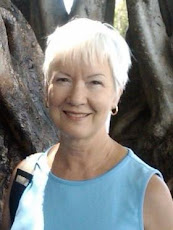

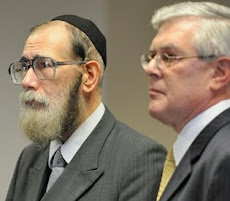

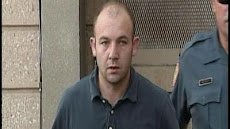









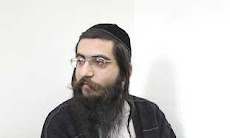





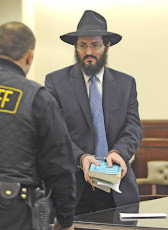














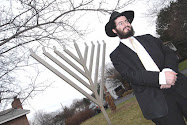




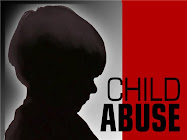













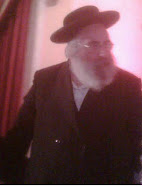



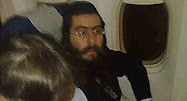




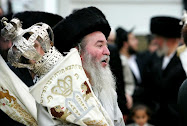


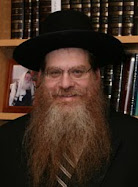












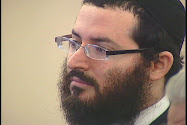
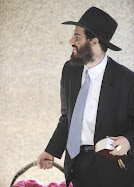
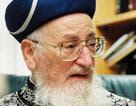









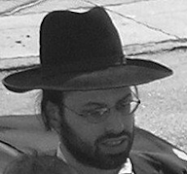

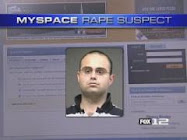









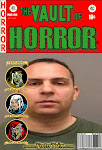











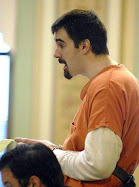


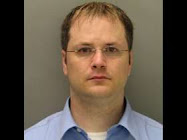


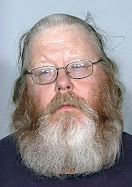

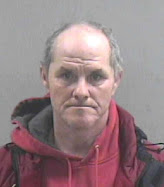

















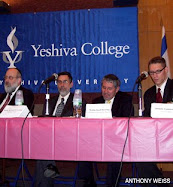






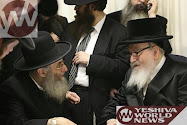
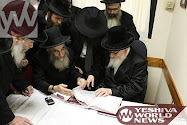









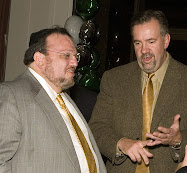
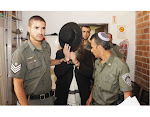



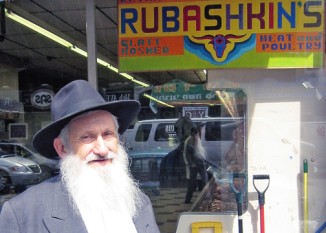


























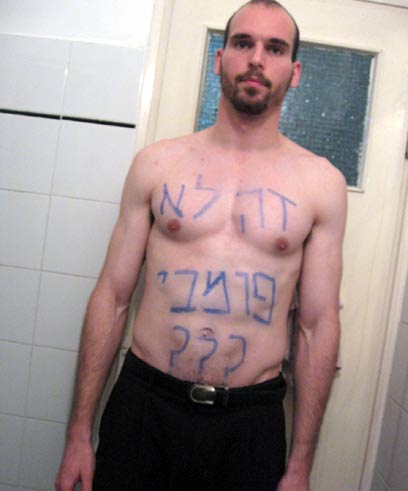
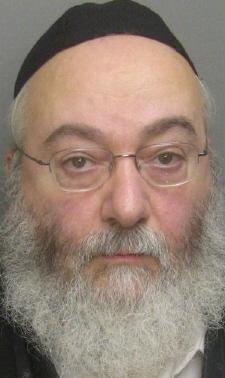



















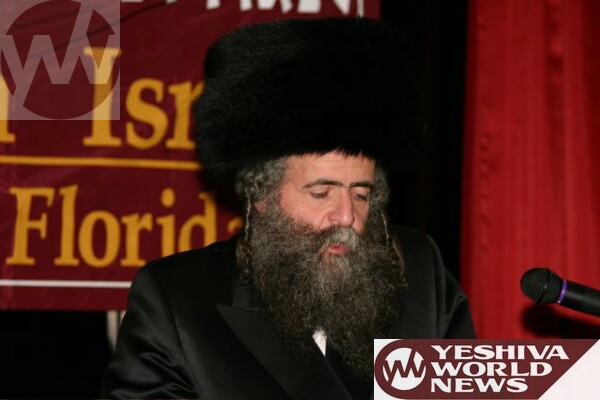




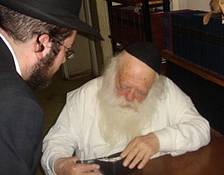

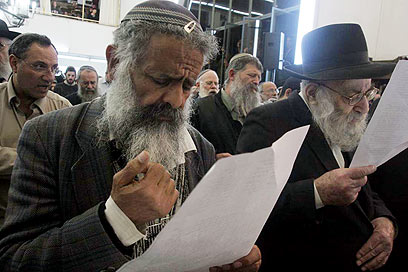
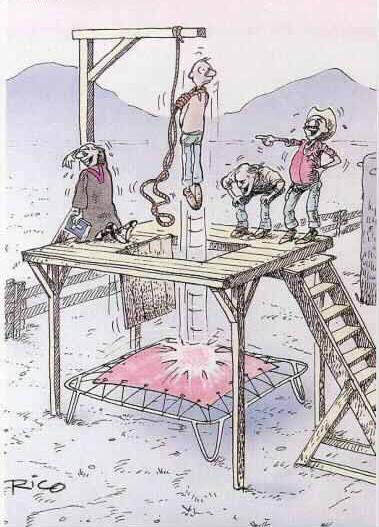



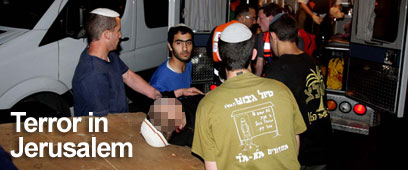

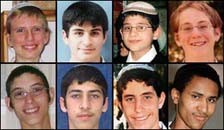
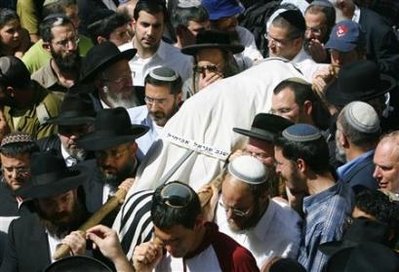
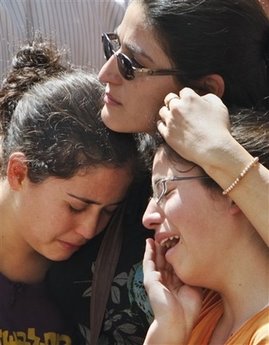
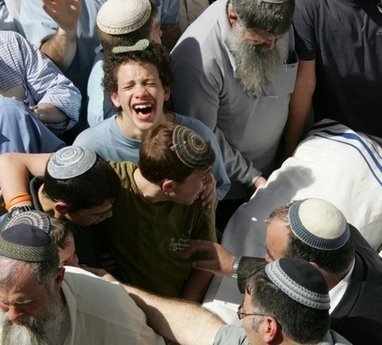












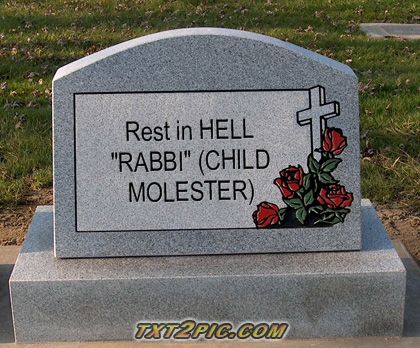








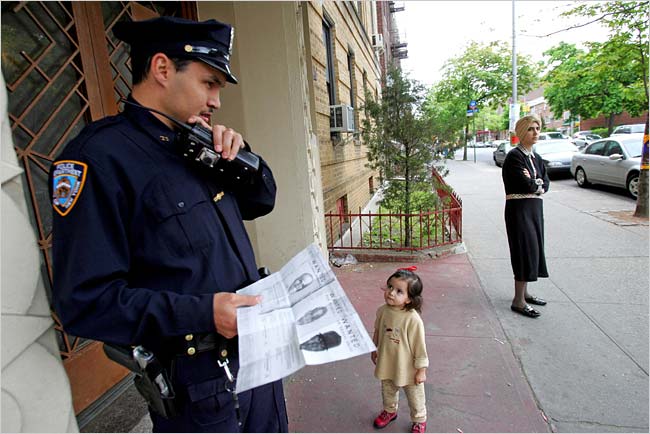















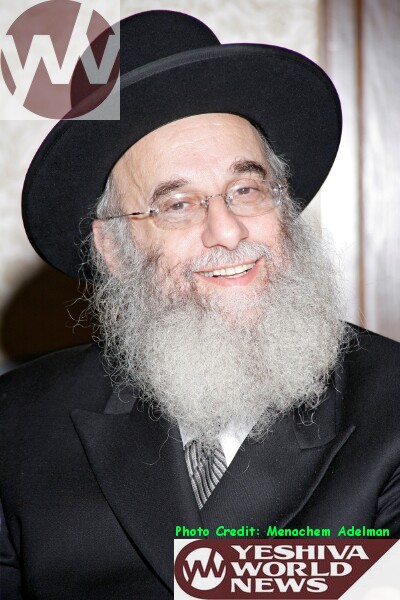


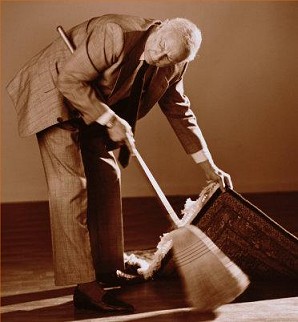









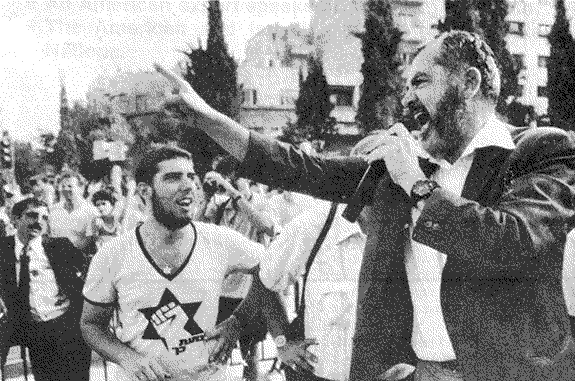



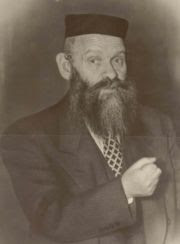




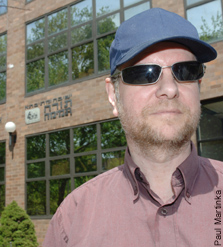


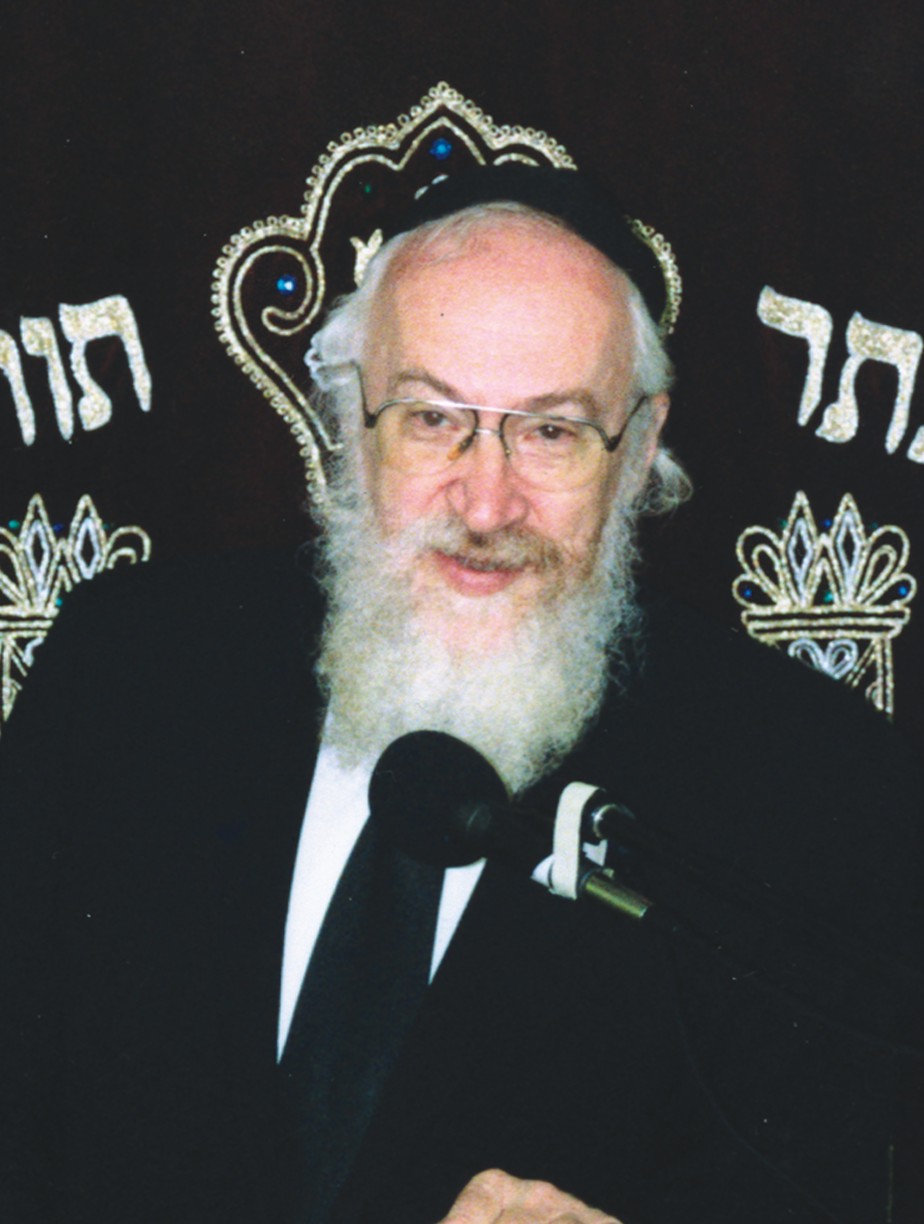





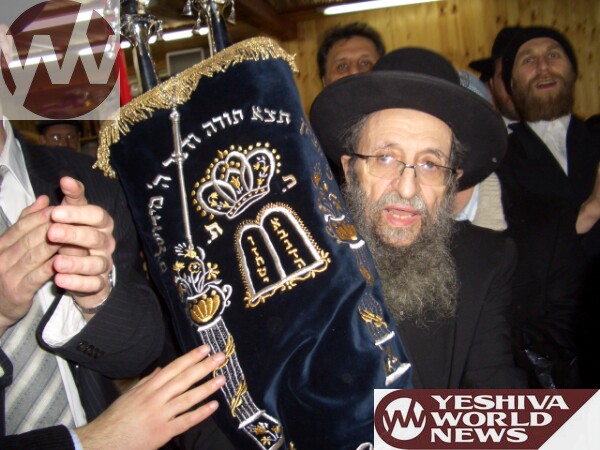




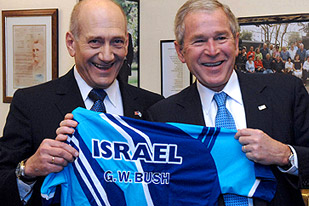



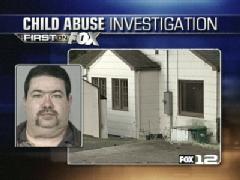
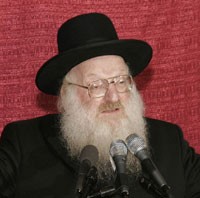

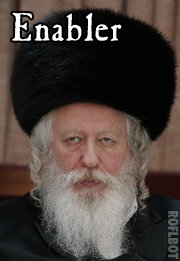



















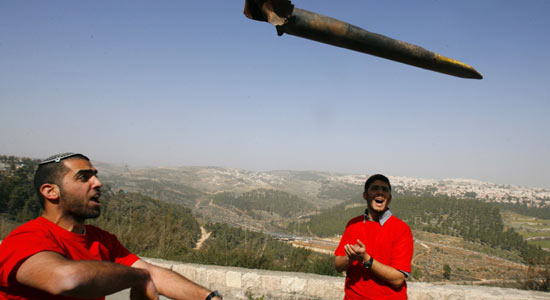
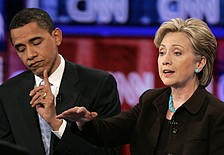


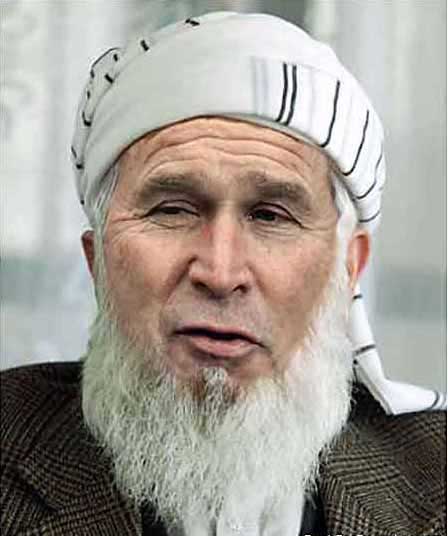









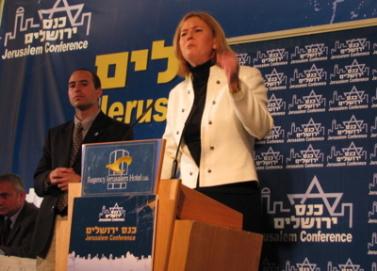



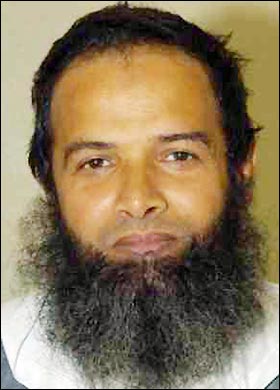


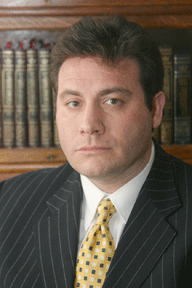

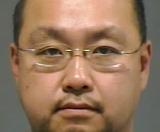
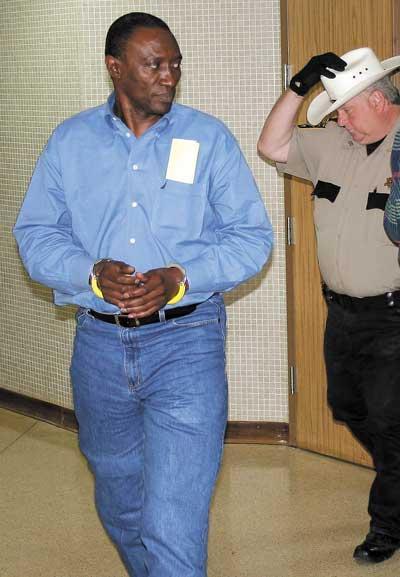

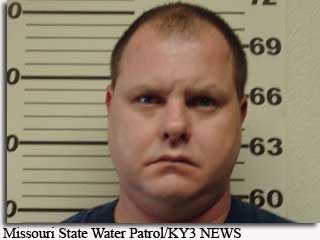



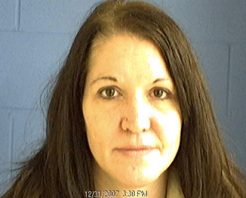


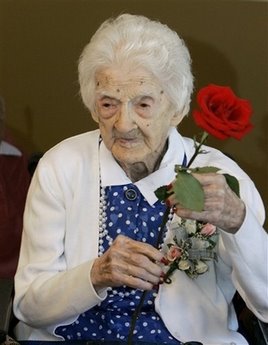

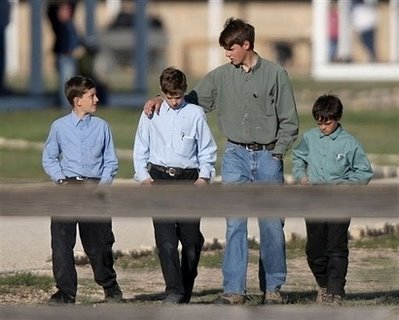









December 8th, 2006 at 12:15 pm
So now, the Agudah will pretend that this isn’t even happening. Really Really sad.
Now the real question is, if someone in Torah Temimah is going to try to buy this kid off and make him go away. Its going to get really ugly before it gets better.
Because remember, now they are checking for sexual predators, who knows when they might start checking the finances.
Another question to ask is, what does Kolko know about other shady stuff in Torah Temimah and elswhere, that they couldnt force him to leave (with a big settlement of course) when they found out years ago.
December 8th, 2006 at 12:26 pm
I am very disappointed by Rabbi Avi Shafran’s response to the Kolko arrest. No comment? Not part of a law suit? What about leadership and community responsibility? What about moral and halachic responsibility towards protecting the vulnerable in our community? What about the Torah’s obligation “uvi-arta ha-ra mikirbekha”- to uproot evil from the community? What about the Agudah’s claim at the convention that they care about victims of abuse and about human dignity? And they are not party to this case? All Jews are responsible for one another!
December 8th, 2006 at 1:04 pm
wow, avi shafran is a prick.
December 8th, 2006 at 1:56 pm
It’s a good thing Kolko was wearing his hat when they carted him away- must have made his rosh yeshiva proud. Shafran’s non-comment is no surprise. Has anyone asked R. Matisyahu Solomon for a comment?
December 8th, 2006 at 2:26 pm
I think that Avi Shafran is trying to split the Agudah into a few parts. There is the part that lobbies on Capitol Hill and submits Amicus Curiae to the Court claiming to represent all Orthodox Jews worldwide. There is the Agudah Convention, which affiliates itself with the Moetzes and claims sole ownership of the Moetzes. There is Am Echad. There is Avi Shafran. There is camp Agudah. Basically, Avi is trying to spin off responsibility from one Agudah arm to the next. Wasn’t it Avi Shafran who wrote the piece against Bob Kolker? Why would it interest the Agudah then, but not anymore? Avi needs to stop this game that he is playing. Be a Mensch. Oh, and while he’s at it, he should tell us all about the behind the scenes, under the carpet sweeping that took place in his hometown, Baltimore, this past Summer.
December 8th, 2006 at 2:40 pm
R Salamon spoke at the Aguda convention last week. He was a keynote speaker. He spoke about the carpet sweeping policy. This week we found out the adverse effects of this sordid policy. Of course the Agudah should respond, if only to defend their short-sighted plan.
December 8th, 2006 at 2:49 pm
There we have it. Agudah, which claims to represent the Torah community and should be at the forefront of developing a strategy for dealing with sexual abuse, has instead been reduced by its chief publicist to nothing more than a summer camp proprietor.
(taken from ...)
December 8th, 2006 at 3:06 pm
UOJ’s effects and success continue to wave across the haredi Jewish world. It is past time for the Canonist to acknowledge this, and to recognize that it is incorrect to evaluate UOJ as a reporter, but rather, as an advocate.
December 8th, 2006 at 4:00 pm
I remember when R. Avi Shafran commented in a full length article about Michael Jackson and Shmuely Boteach a couple of years ago. I suppose that was Agudah business.
December 8th, 2006 at 4:13 pm
DK - I intended to address this issue in a separate post. This and any future revelation doesn’t change the fact that UOJ went about this in a wrong way that was obviously harmful to the case’s credibility and for which he has no excuse. There remains no reason why UOJ had to maintain anonymity for his small role on this issue, and it remains quite clear that if he had chosen not to do so under his real name, and using credible and open methodologies, the case would have been better off.
I’m not evaluating UOJ as a reporter. Advocates should be bound by ethics, too. And what UOJ has done is unethical and unfair to all parties, including the victims.
December 8th, 2006 at 5:40 pm
Where is the comment to this arrest of the RCA? The OU? The Edah Charedis?
What Rabbi Shafran is saying, in plain English, is “get off my case, this isn’t an Agudah affair, it is a YTT one, and why the heck would we want to stick our heads into this mess.”
You want a general statement about Rabbi Shafran’s position on child abuse, I believe he wrote something in May.
December 9th, 2006 at 3:09 pm
R’ Shafran’s defiant, legalistic reply is remarkably tone deaf. There were so many more compassionate ways to respond, with regret and hope for the future - even without accepting any responsibility or expressing an apology – that would have been more appropriate.
December 9th, 2006 at 7:11 pm
Steve, I think that its important that you compare the Shafran statements on Kolko now to the ones about lanner a few years back in when he could hardly hide his glee that someone in the ou was caught doing such a thing, and how it would never happen with agudah. One also needs to investigate if kolko ever spoke by any agudah function or any agudah convention, to solidify the connection.
December 9th, 2006 at 10:39 pm
I suppose El Al airlines WAS an Agudah employee
December 9th, 2006 at 10:56 pm
“One also needs to investigate if kolko ever spoke by any agudah function or any agudah convention, to solidify the connection. ”
from rumous I heard, the Camp Agudah head counselor is very nervous / rueful about his role in keeping Kolko on after multiple complaints. Could be shafran still has Agudah to protect here, so is just doing his job.
December 10th, 2006 at 12:04 am
Did you really expect to get a real answer from Rav Shafran? Remember anything he says can and will be used in a court of law.
December 10th, 2006 at 1:01 am
zalman:
you said it best
bari:
i’m sure if the ou and rca were to criticize ytt now you would:
a) accuse them of being hypocrites because of their own sorid pasts
b) condemn them for coming down so hard on a rw institution and further dividing the orthodox community.
the point is that ytt’s people are agudah people, not rca or ou people.
that having been said, the rca and ou should be addressing the wider problem.
December 10th, 2006 at 3:46 am
Would you mind providing for us here the exact email you sent to R’ Shafran?
December 10th, 2006 at 4:15 am
Bryce -
December 10th, 2006 at 12:27 pm
I personally don’t care who makes the statement, but the time has come to institute a centralized database and methods for filing complaints if we plan to deal with any personal issues internally.
December 10th, 2006 at 2:43 pm
>I personally don’t care who makes the statement,
>but the time has come to institute a centralized
>database and methods for filing complaints if we
>plan to deal with any personal issues internally.
There is none and no organization in Judaism, outside the Awareness Center, is interested in creating one. Even at the RCA and OU, all one has to do is resign to avoid an investigation or action.
Unless there is cooperation between all denominations of Judaism no such solution will be developed. At this time, no one denomination wants to create a system, they all pass the buck.
December 10th, 2006 at 2:53 pm
I’ve posted proof as to Agudath Israel’s cpmplicity in cooperaring with the Cathloic Church in blocking legislation which would have required rabbonim to report the allegations against Kolko to the proper authorities and investigators.
Agudath Israel is responsible for the abuse of the latest survivor to come forward, a 6 year old boy (now 9).
...
December 10th, 2006 at 3:15 pm
JWB: My message to the leadership of Agudath Israel do public teshuvah now or resign.
For the past decades, Agudath Israel has blocked laws that would have directly protected our children. They have worked with the Catholic Church to this end. This has left our children vulnerable and protected the sexual predators in our community. I have included Agudath Israel’s own legal memo and several articles below.
I hold them directly responsible for creating the environment in which the latest survivor of sexual abuse (who has come forward in the Rabbi Kolko case) was sexually assaulted at age 6.
The leadership of Agudath Israel must immediately do public teshuvah and require all rabbonim nationwide to immediately turn over ALL allegations of sexual abuse over the past decades to the secular authorities and allow them to properly investigate. Let the skilled professionals assess and investigate the allegations. Rabbonim do not have the skills or background to do so. Nor does any Yeshiva background provide such skills
If they cannot do so, it is time for them to step aside, resign and leave communal leadership. If they are not prepared to provide moral leadership, it is time for a regime change.
(for articles and legal memo see link in last post)
December 10th, 2006 at 5:16 pm
That should have read personnel issues, not personal issues.
December 10th, 2006 at 5:40 pm
My short term solution since no one or organization appears interested in “institut(ing) a centralized database and methods for filing complaints”.
1) Make rabbis mandatory reporters of abuse. Thus, all allegations MUST be reported to the police. Make more serious penalties for failure to report (mandatory jail time)
2) Expand the mechanisms that exist in the public system to our private schools system. For example, in NY, we need a professional system to investigate serious allegations. I suggest simply expanding the NY Board of Education’s jurisdiction to include investigations into the moral character of people working with children in private schools and camps.
3) Continue support of the Awareness Center. The only database of sexual predators today in the Jewish community.
December 11th, 2006 at 2:21 pm
Resolution Regarding Members Accused of Improprieties
Adopted by the Rabbinical Council of America
May 28, 2003
...
WHEREAS, in recent years there have been reported a number of incidents of sexual, physical and/or emotional abuse perpetrated by rabbis and teachers, including members of the Rabbinical Council of America, against members of the communities that they serve and others, adults and children, in violation of Torah law and of civil law; and
WHEREAS, failure to respond to such cases is a violation of the verse, “Thou shalt not stand idly by the blood of your neighbor” (Lev. 19:16; see Hilkhot Rotseiach 1: 14); and
WHEREAS, it is the duty of the Rabbinical Council of America to protect the integrity and welfare of the members of the community that its members serve; to serve and help its members in times of crisis; to represent to the community the best of Torah values; and to protect the dignity of Torah and Orthodox Judaism; and
WHEREAS, events of the past have proven, to our great dismay, that organizations and individuals have not always dealt with these incidents in the best possible way; and
WHEREAS, rabbis must conduct themselves in ways that are exemplary in their religious, moral and interpersonal conduct, not only because of their personal obligations that are governed by the Torah and the Halachah, but in fulfillment of the ideal of ahavat Hashem, “And you shall love the Lord your God: that the Name of Heaven be beloved because of you” (Yoma 86a)., an obligation that calls upon each Jew to conduct himself/herself in ways that reflect nobly on the Torah and God, and to refrain from any improper conduct in all areas including, but not limited to, sexual, personal, and economic behaviors; and
WHEREAS, the verse, “And you shall be guiltless before the Lord and before Israel.”(Numbers 32:22) extends the concerns of conduct to mar’it ayin and heshad, suspicious behaviors, and places a higher responsibility on personal and professional conduct of all Jews, especially rabbis; and
WHEREAS, improper behavior can cause a hillul Hashem, a desecration of God’s Name, a transgression that it is more difficult to atone for than for any other sin, so that not even repentance, the atonement of Yom Kippur, and personal suffering can absolve one of this offense (Yoma 86a); and
WHEREAS, the Halachah recognizes that an adam hashuv (a prominent person) is held to a standard of behavior and morality higher than that to which others are held and must refrain from any improper behavior, even if not explicitly prohibited or illegal, lest he cause a hillul Hashem, a desecration of God’s Name. An adam hashuv, a well-known and well-respected person, and a talmid hakham, a pious, learned scholar, are expected by others to live according to strict moral standards-therefore, the greater the desecration when they fail to live up to these expectations. Their failures reflect negatively not only upon their personal reputations, but upon the Torah that they claim to uphold and upon the God they represent. Among others, these behaviors include embarrassing one’s colleagues due to the nature of the rumors that are spread about him (Yoma 86a), embarrassing one’s colleagues by the less-than-dignified activities in which he engages (Rosh to Moed Katan, ch. 3, no. 11) and degrading the honor of Torah (Pesahim 49a); and
WHEREAS, the Mishnah, Avot 4:4, reminds us that sequestering a hillul Hashem will always be unsuccessful: “Whoever desecrates the name of Heaven in private will ultimately be punished in public, whether the desecration was committed unintentionally or intentionally.” Hence, a conspiracy to conceal information about abuse will ultimately be made public, creating an even greater hillul Hashem; and
WHEREAS, the Talmud, Berakhot 19b, posits, “Wherever a profanation of God’s Name is involved no respect is paid to a rabbi”; and
WHEREAS, R. Akiva explained the biblical verse, “And you shall love your friend as yourself (Lev. 19:18)” by positing, “What is hateful to you, do not do to your friend.” (Shabbat 31a), we are obligated to respect and protect the integrity, welfare and dignity (kevod ha-beriyot) of our fellow humans;
THEREFORE, BE IT RESOLVED THAT:
The Rabbinical Council of America condemns in the strongest terms any act of sexual, physical or emotional violence, abuse or impropriety, perpetrated by any of its members against any child or adult and declares to all victims that the abuse is the responsibility and sin of the abuser and is not the responsibility or sin of the victim; and
The Rabbinical Council of America recommits itself to fulfilling its responsibility for the welfare of the members of the Jewish community at large and the general community as well, especially to those who have been victims or who claim to be victims of an act of sexual, physical or emotional violence, abuse or impropriety; and
The Rabbinical Council of America commits itself to reevaluating its policies and procedures in cases of accusations of acts of violence, abuse or impropriety made against any of its members and to develop and enact, in a timely manner but no later than June 30, 2004, those policies and procedures that will effectively and responsibly respond to accusations made against any of its members including:
• a reevaluation of the role and function of the Vaad Hakavod;
• the adoption of standards, policies and procedures for the reprimand and censure of members of the Rabbinical Council of America, as well as provisions and procedures for the suspension and revocation of membership;
• the adoption of provisions for reporting convicted or admitted abusers to the Placement Committee so that they will be prevented from assuming positions that will place others in possibly harmful situations as well as to develop responsible means to identify abusers to those communities or institutions to which they may move;
• the development of plans to help members who have been involved in improper behavior find appropriate therapeutic support, as well as the development of procedures to help the families and congregants of these members deal with the very trying circumstances they face;
• the education of rabbis in proper conduct in interacting with others as well as in ways to being falsely accused of improper behavior. We are also concerned about the possibility of a false accusation made against a member and commit ourselves to develop means to evaluate the veracity of an accusation and to help and support a rabbi who is falsely accused. We recognize the great difficulties involved in evaluating an accusation and in determining its veracity. The Rabbinical Council of America commits itself, in developing these new procedures, to proceed with careful and responsible deliberation in developing guidelines for investigating and trying to determine the validity of accusations; to take into account the issues of confidentiality as it applies both to the accuser and the accused; to respect the need for integrity and timeliness in the investigative process; and to consult with such professionals as lawyers and psychologists, as well as with victims and their families who can contribute in many significant and important ways in formulating and executing these policies.
• The Rabbinical Council of America maintains that reporting acts or suspicions of child abuse is not mesirah* and commits itself and its members to reporting acts or suspicions of child abuse as required by civil law; and
The Rabbinical Council of America recommits itself and its members:
• to assert responsible leadership in publicly condemning acts of sexual, physical and emotional violence, abuse and impropriety and in formulating
• * to execute educational materials and programs that will educate its rabbis and lay persons in the areas of sexual, physical and emotional violence, abuse and impropriety,
• to execute procedures and policies that will safely, sensitively and effectively protect the members of the community from violence, abuse and impropriety,
• to deal appropriately with its members who have perpetrated such violence, abuse or impropriety; and
The Rabbinical Council of America urges its members to assert responsible leadership in their individual synagogues, schools, organizations and communities in publicly condemning acts of sexual, physical and emotional violence, abuse and impropriety and
• in formulating and executing educational materials and programs in their synagogues, schools, organizations and communities that that will educate the members of their institutions and organizations in the areas of sexual, physical and emotional violence, abuse and impropriety.
• to establish and execute procedures and policies in their individual communities that will safely, sensitively and effectively protect the members of those communities, synagogues and schools from violence, abuse and impropriety, including the proper training and education of all staff members and the publishing of guidelines for acceptable behavior as well as guidelines for the reporting of suspicions and acts of inappropriate behavior, and guidelines for effectively dealing with those reports; and
• The Rabbinical Council of America commends those organizations and individuals that have raised these important issues in our community; that have developed programs that have helped victims of violence and abuse to acquire therapeutic, psychological and legal help; that have furthered public awareness of these issues; and that have furthered the physical safety, emotionally integrity and spiritual well-being of individuals and of our community at large.
————————————————————————
Endnote:
1. Arukh HaShulhan maintains that mesirah was prohibited because of the nature of autocratic governments under which Jews lived throughout much of our history. Such informing often led to dangerous persecution of the entire Jewish Community. He posits that this injunction no longer applies in those communities in which the government is generally fair and non-discriminatory. (Arukh HaShulhan, Hoshen Mishpat 388:7. This source is cited authoritatively by Rabbi Gedalia Dov Schwartz in “The Abused Child: Halakhic Insights.” Ten Da’at, Sivan 5748. p. 12). Accordingly, it is obligatory in the Western world today to inform the civil authorities about individuals who abuse others.
2. The prohibition of mesirah applies only when testimony assists civil authorities in illegally obtaining the money of another Jew, not when it aids a non-Jewish government in fulfilling such rightful duties as collecting taxes and punishing criminals. When, however, the information concerns the criminal activities of a fellow Jew - as long as the Jewish criminal has also violated a Torah law, and even if the punishment will be more severe than the Torah prescribes (RaN to Sanhedrin 46a) - the ban of mesirah does not apply. (Rabbi Herschel Schachter, “Dina deMalchuso, Dina,”Journal of Halachah and Contemporary Society, I, p. 118.)
3. Even should one hold that the prohibition of mesirah is relevant today, reporting child abusers to civil authorities is nevertheless mandatory. According to Rema, even when the prohibition of mesirah is in force, “a person who attacks others should be punished. If the Jewish authorities do not have the power to punish him, he must be punished by the civil authorities.” (Hoshen Mishpat 338:7 and Shakh, no. 45. See also Gloss of Rema to Hoshen Mishpat 338:9.) Our Batei Din today have neither the power nor the authority to handle such matters.
4. Shulhan Arukh rules that the prohibition of mesirah restricts an individual who is being harassed from making a report to the civil authorities. However, when there is a meitzar hatzibbur (public menace), mesirah is permissible. (Hoshen Mishpat 338:12, see Shakh, no. 59 and Gra no. 71.) Child abusers and molesters clearly endanger the welfare of many children with whom they have contact. (Rabbi Waldenberg quoted in Nishmat Avraham, Vol. IV, p. 209.)
5. See Rabbi Michael Broyde, “Mesirat Meida al Avaryanim lidei ha-Shiltonot be-Artzot ha-Berit,” Hadarom, vol. 72-73, Elul 5762, pp. 7-38; p. 37, note 90.
December 11th, 2006 at 10:31 pm
SIW,
didn’t you leave out the end of shafran’s email where he says, “if you want me to comment on the decadence of the conservative movement, for that i have plenty of time”?
December 11th, 2006 at 10:53 pm
Just for you Tzvee, quotes from Shafran’s book about the reform and conservative movements that was online just a few years ago. It has since been removed:
“These people are not so much meant to be hated as enemies and wished dead for the sake of ‘revenge’ or to see them dead. The way we hate such people is not like the ‘cat hates the mouse,’ but rather like the ’storekeeper hates the vermin’ which infest his store, not hating the vermin themselves but wanting them gone in order to arrest the damage they are causing. We resent their existence. So, in lieu of the fact that we are not allowed to physically harm these people today, we should still treat them with utter contempt and disrespect, avoiding contact with them as one would with any destructive fiend.”
Shafran writes about Conservative and Reform leaders that there is “a law which orders loyal Jews to kill these types of people if at all possible,” a law which was declared inapplicable today by the Chazon Ish but which “remains valuable for the light it sheds on the way Real Judaism” regards such people.
He states that Conservative and Reform leaders “qualify for the infamous titles of min and apikoros” and “are the followers of Korach;” Shafran states that “these man-made ‘religions’ [Conservative and Reform] are the most destructive forces in the history of the Jewish people and all those who seek to spread their noxious heresies are mesisim, instigators whose aim is to lead astray the masses;”
December 11th, 2006 at 10:58 pm
And yet what does the spokesperson for an organization that has blocked laws that would have directly protected our children, an organization that has worked with the Catholic Church to this end, an orgaganization that has left our children vulnerable and protected the sexual predators in our community, have to say about the sexual predator they protected for decades?
Shafran: “Why would we have comment about the arrest of an individual?”
Typical.
December 11th, 2006 at 11:04 pm
ITS ONLY A REPEAT OF 1942 WHEN THE GEDOLIM TOLD STEPHEN WEISS NOT TO DEMONSTRATE IN WASHINSHGTON………..SEE EPHRAIM ZUROFF BOOK SHERER YMS AND AGUDA BY NOT COMMENTING ON A SERIOUS AND HEINOUS CRIME LIKE THIS JUST PROVES THE FACT THAT SCHECTER AGUDA OU ARE CRIMINALS AND NOT WORTHY OF BEING IN KLAL YISROEL. FUCK THEM
December 12th, 2006 at 12:08 pm
Wow, Mark, you’re really twisted. It was Wise (not “Weiss”) who told the rabbis (there were no “gedolim” then) not to protest, not the other way around.
Oh, and Sherer is long dead.
December 13th, 2006 at 7:52 am
nachum………………………………… the facts in 1943 the rabbis decided to march wise position was it was not helpfull then, in 1942 one year earlier the america jewish congress and the zionits begged for demostrations against the nazis but were rebffed by the vaad hazola u can call me names but thats the fact
December 13th, 2006 at 7:57 am
TO ALL………..ANY AGUDA ROV WHO HELPED AGUDAT ISRAEALS SUPPORT A BILL NOT REQUIRING MANDATORY TEPORTING OF SEX ABUSE IS GUILTY OF THE MOST HENNIOUS CRIME WHILE BRODT WAS SINGING AT THE AGUDA TURKEY SHOW KIDS WERE BEING MOLESTED